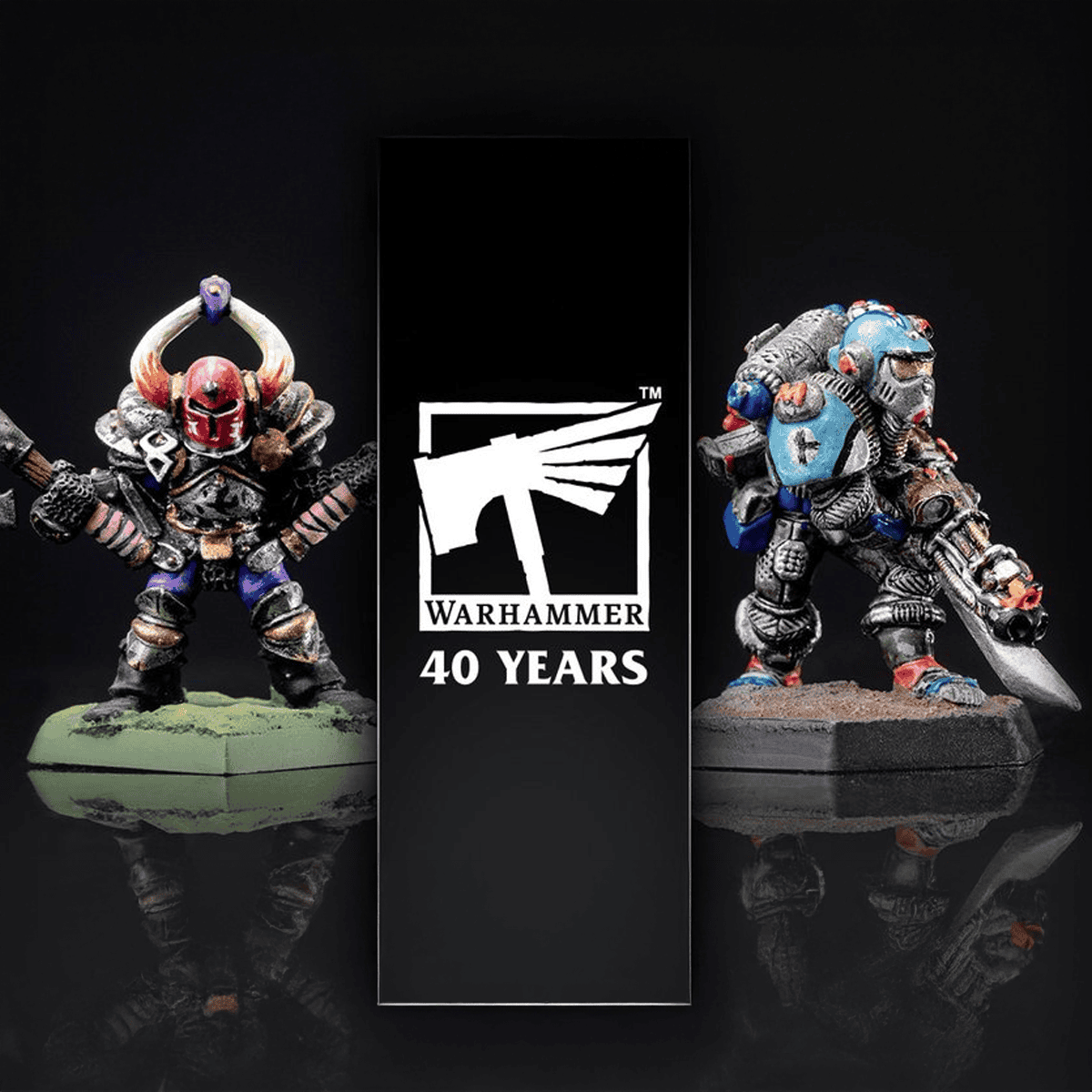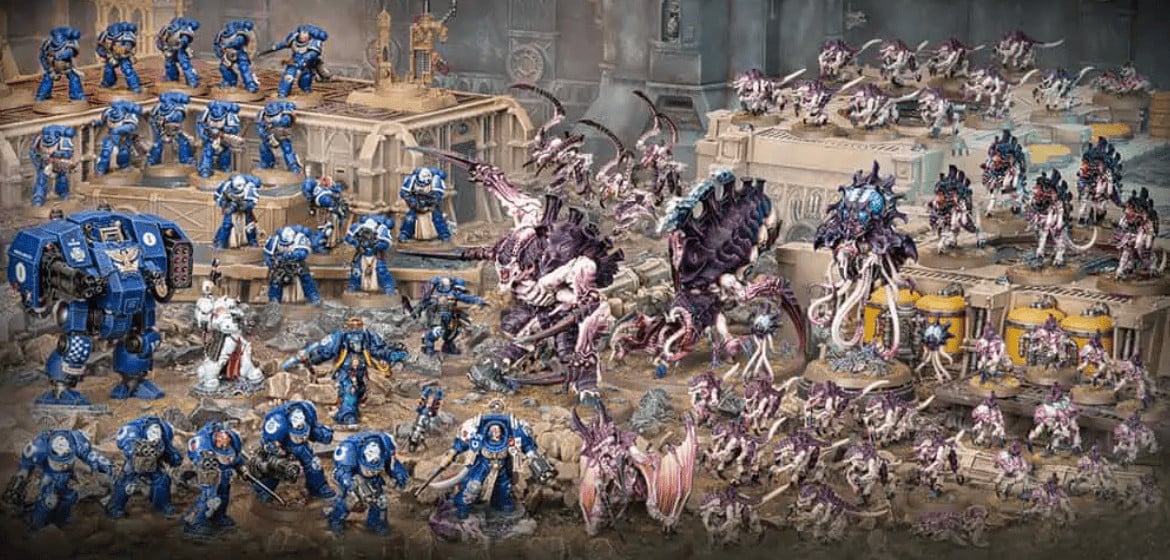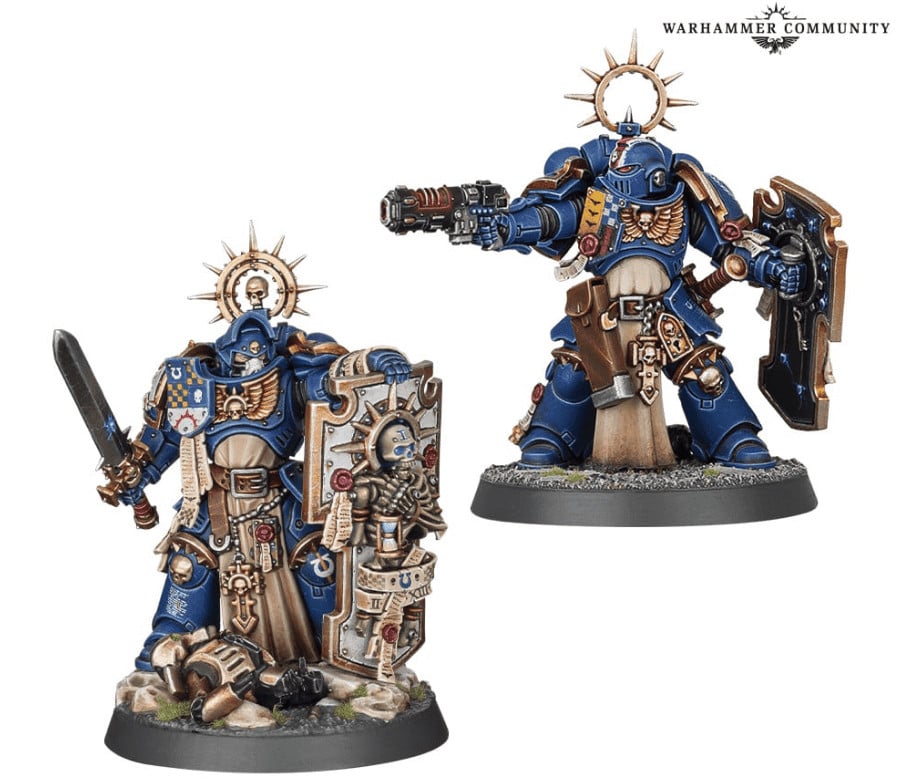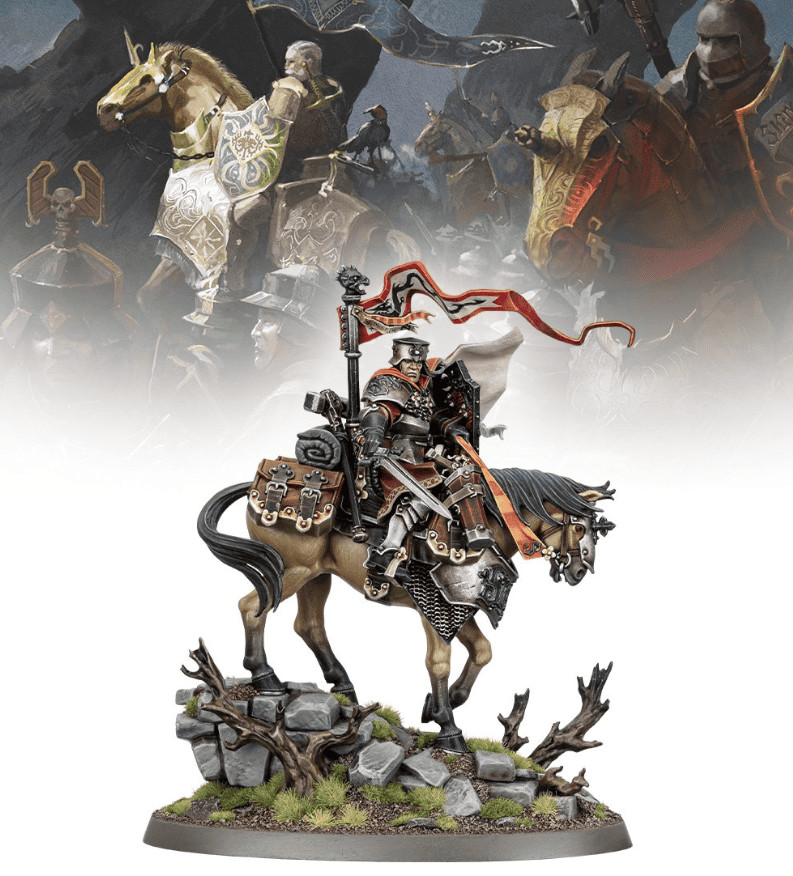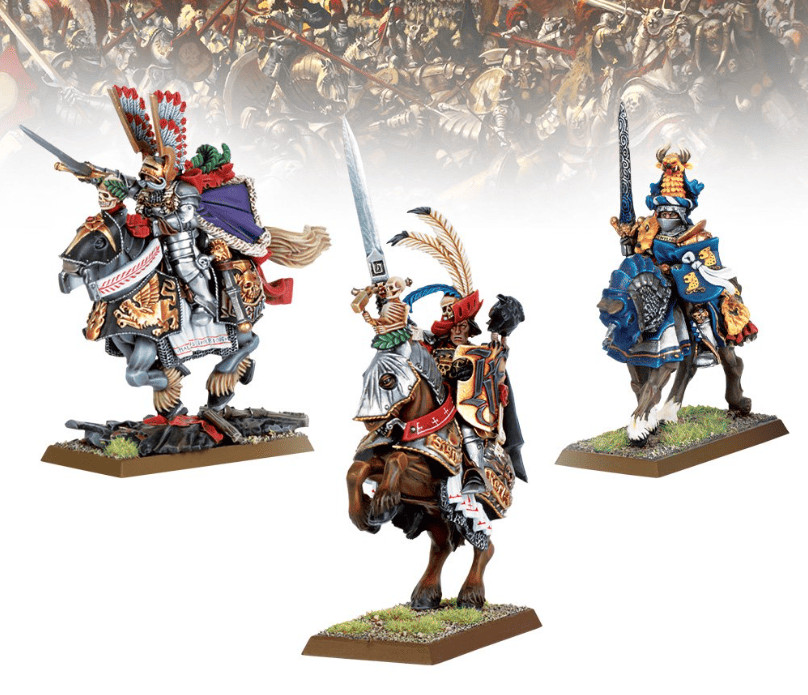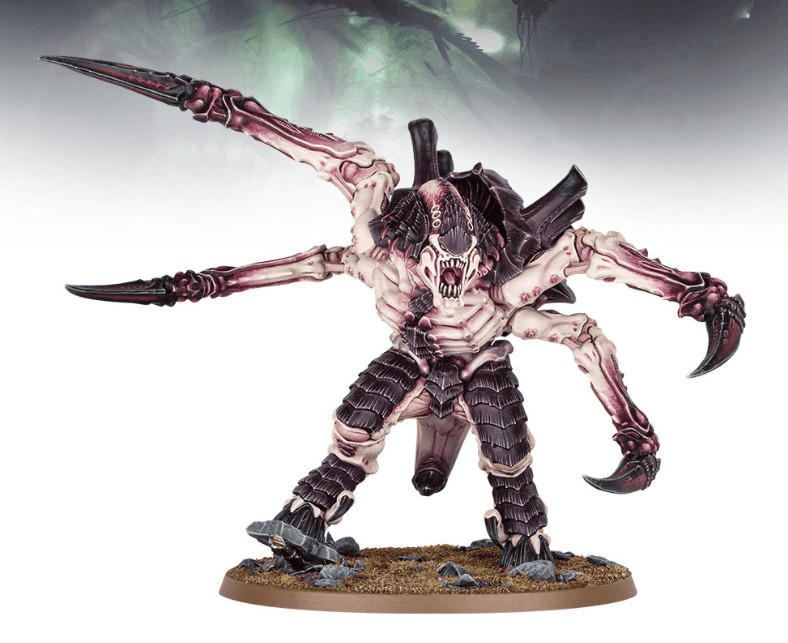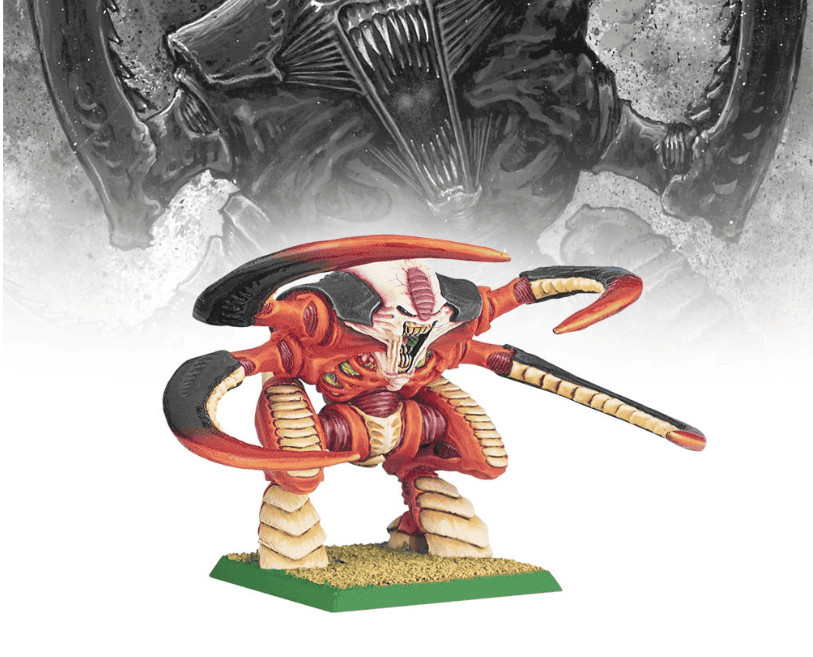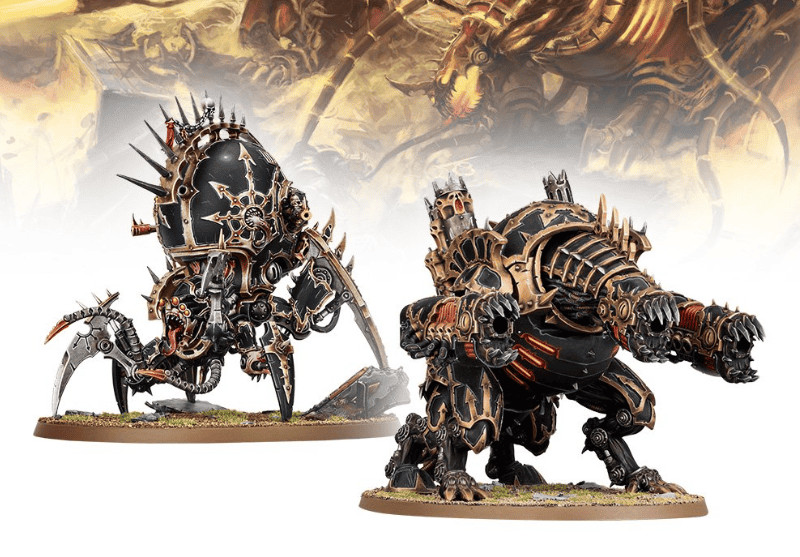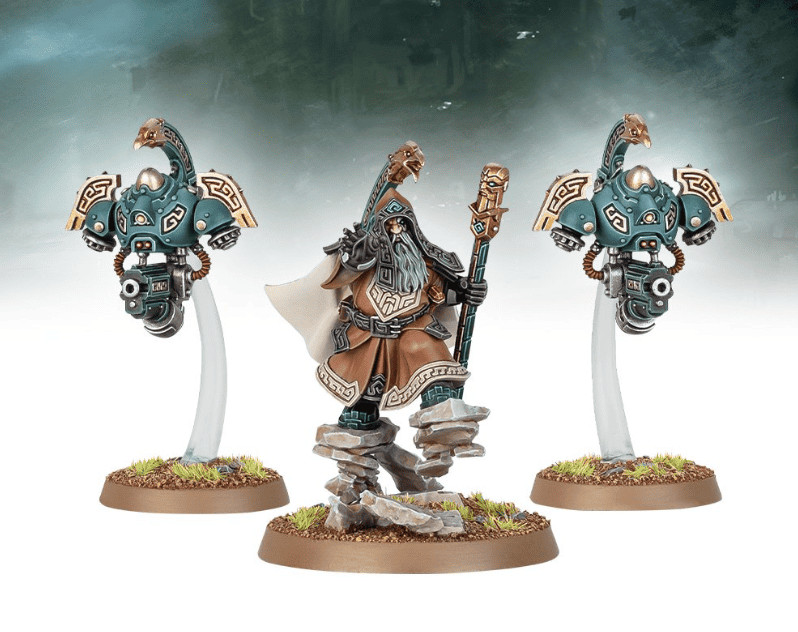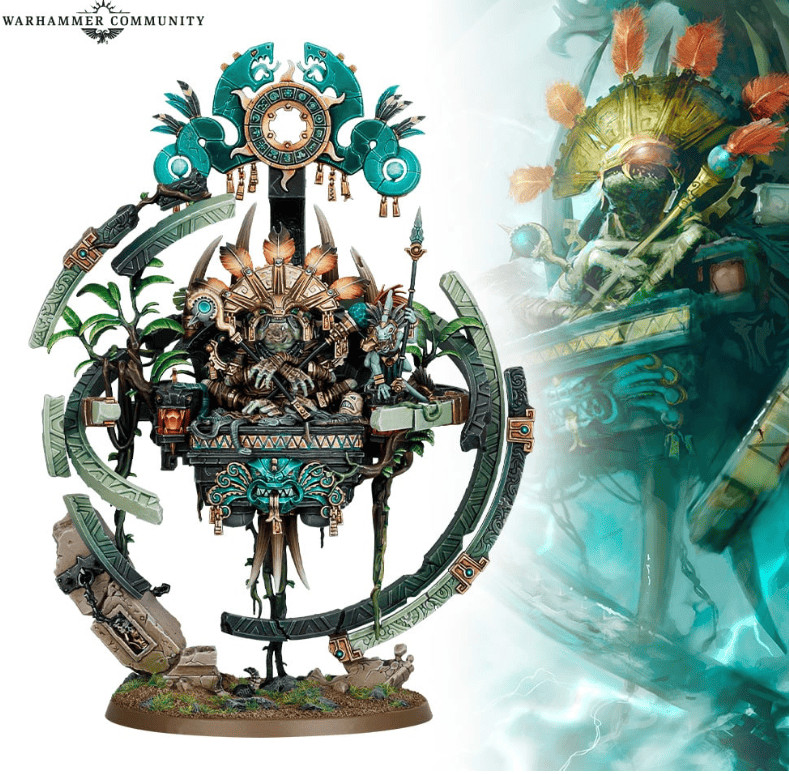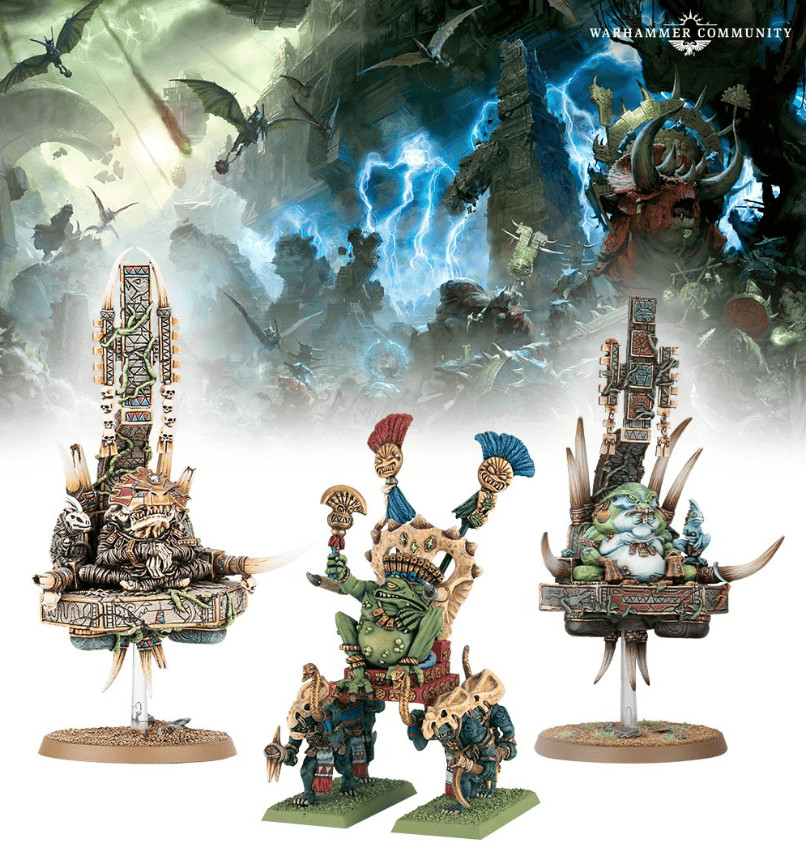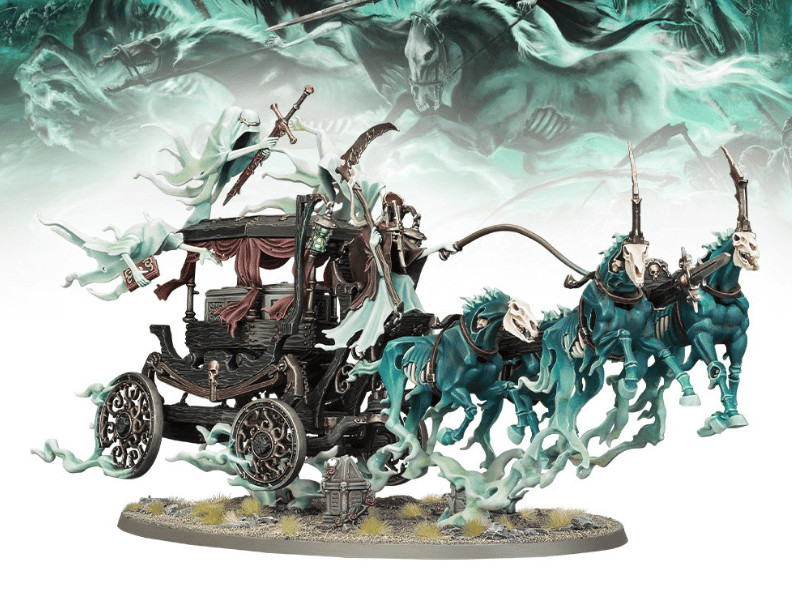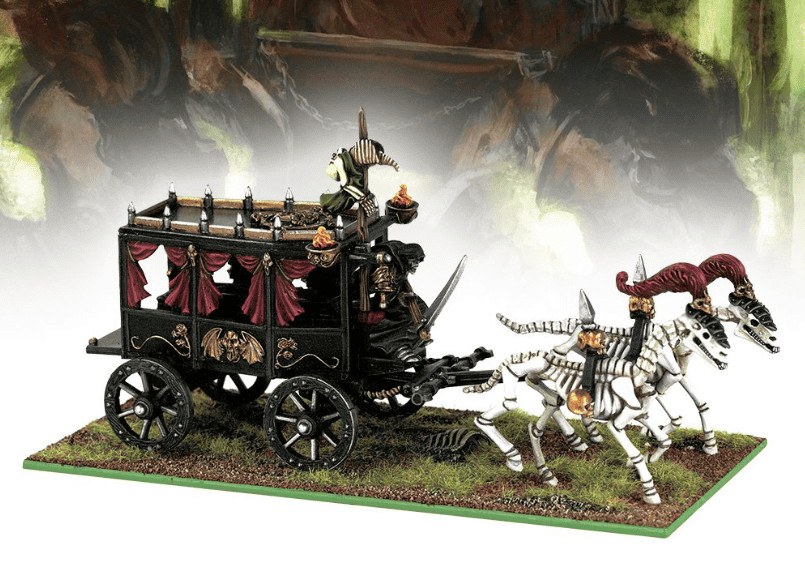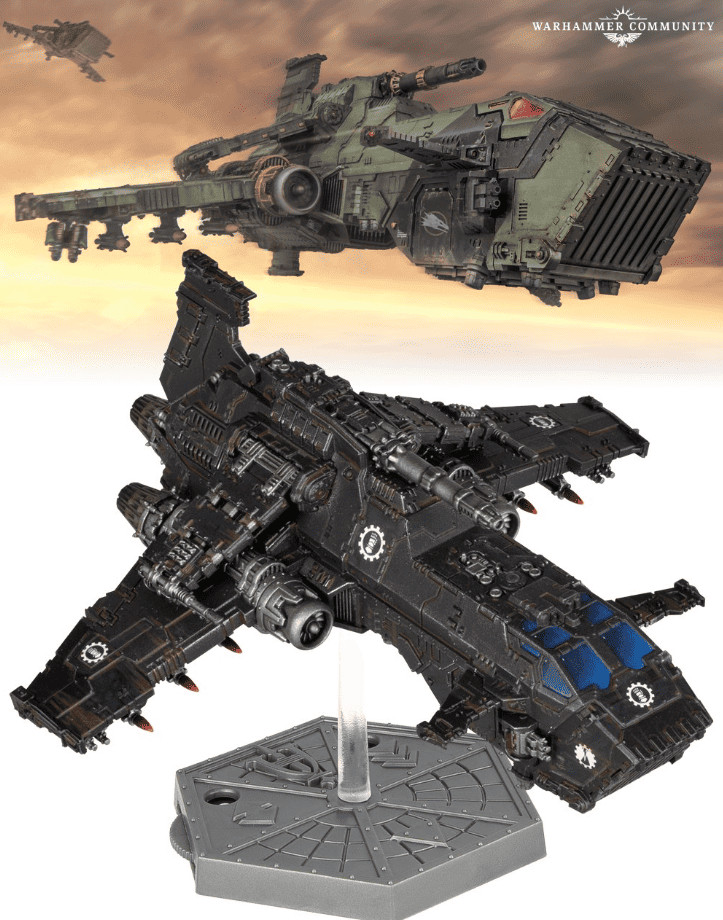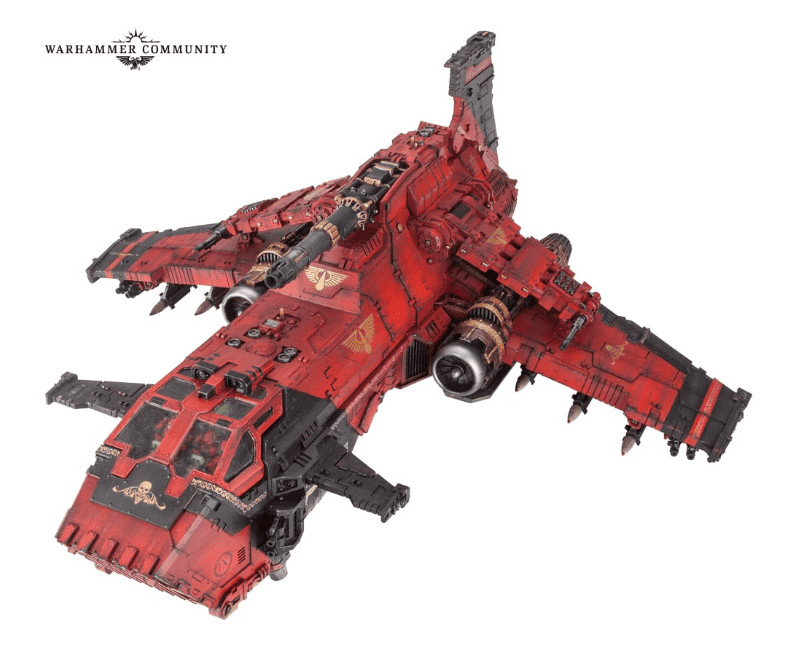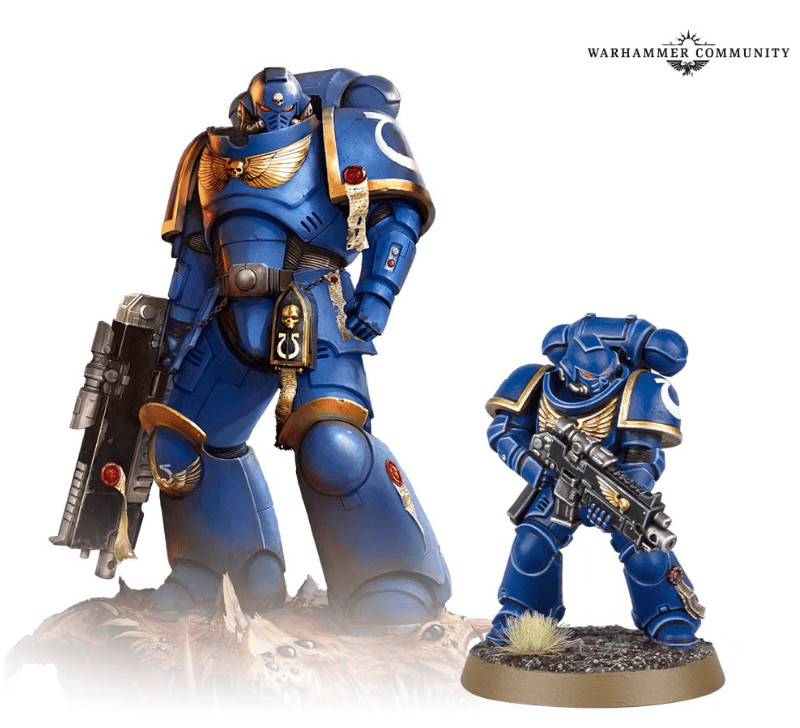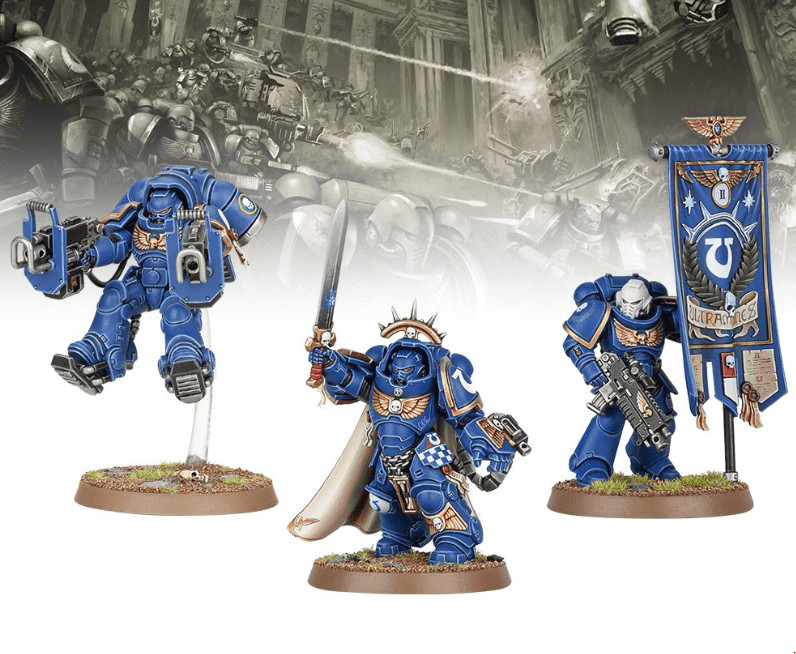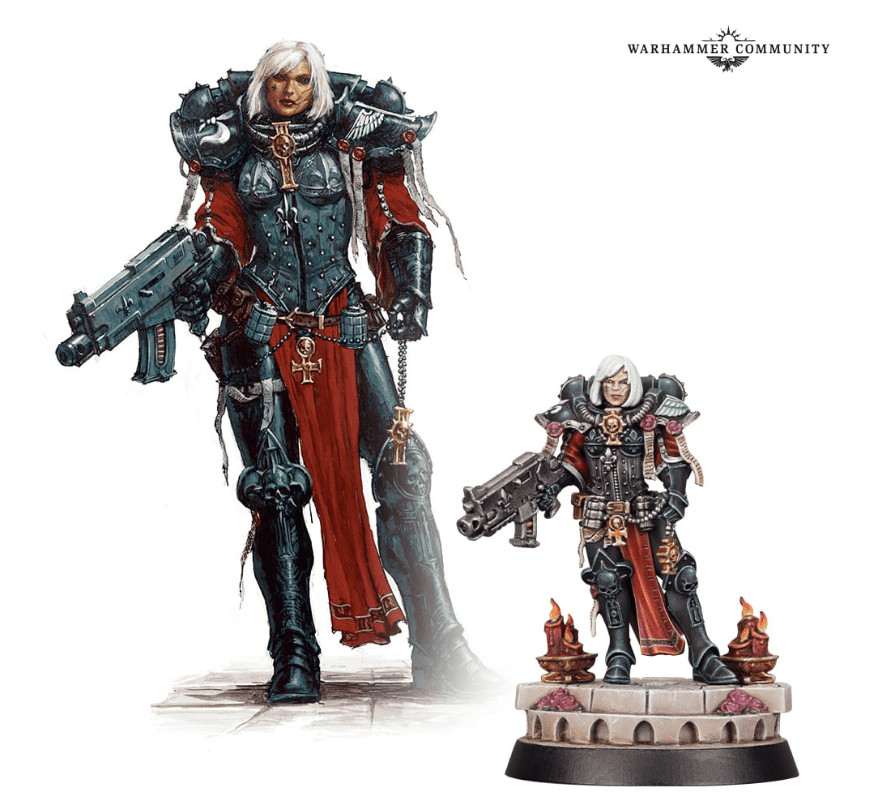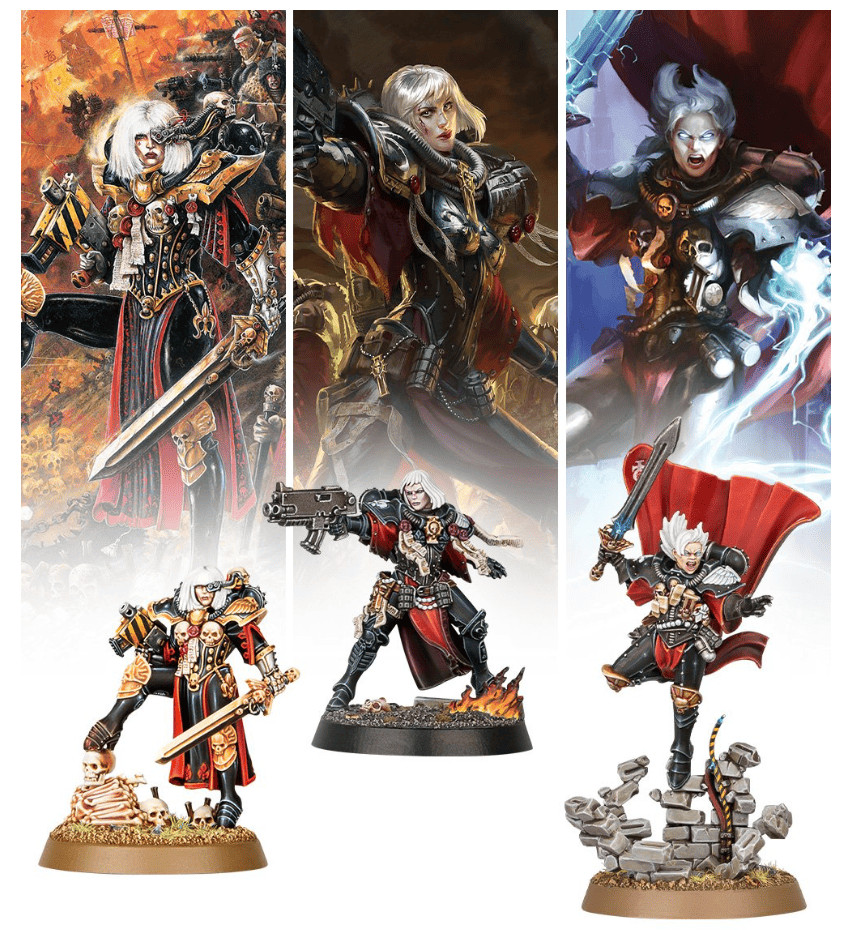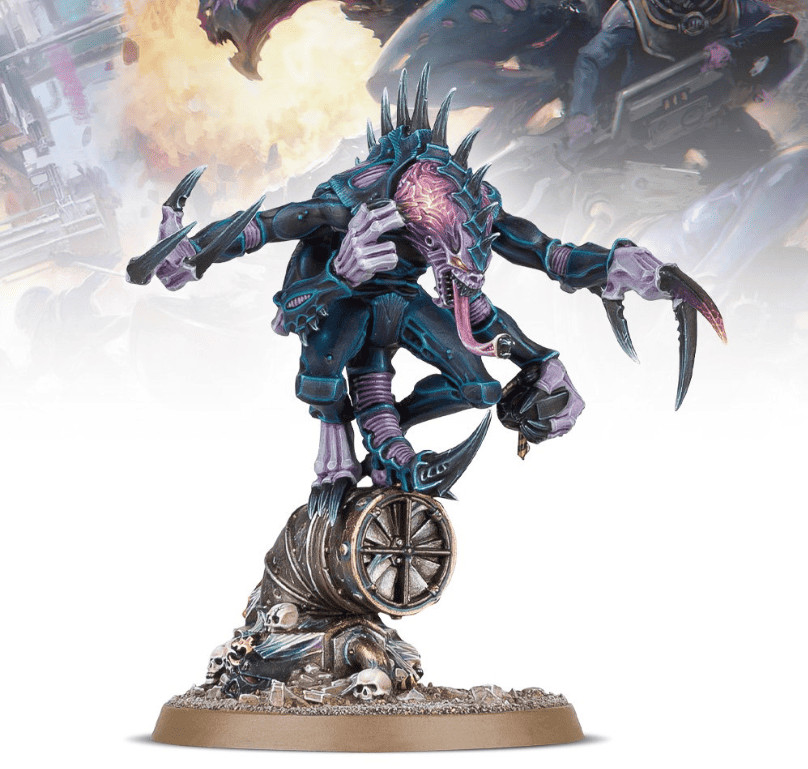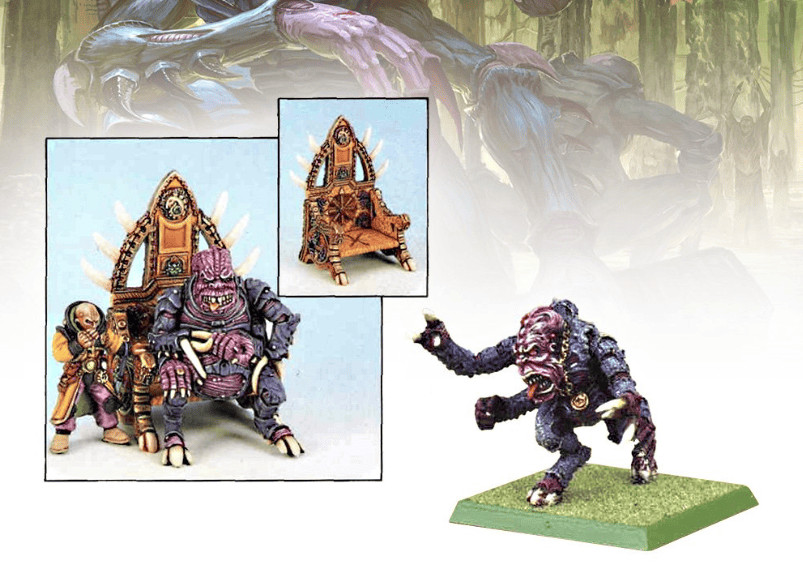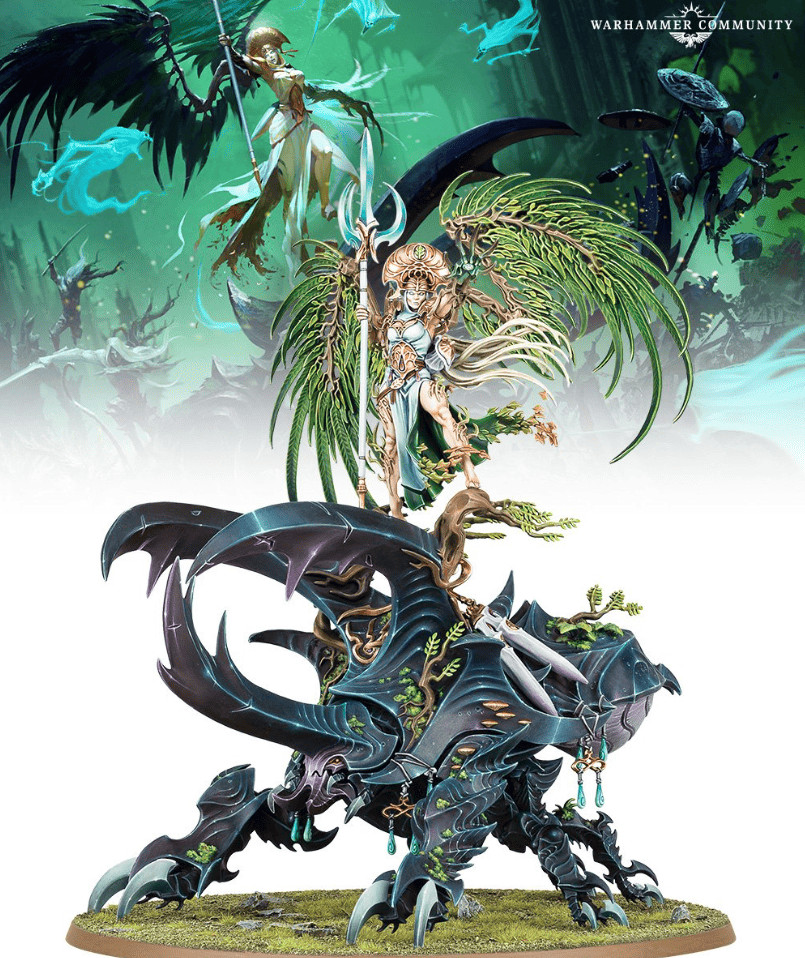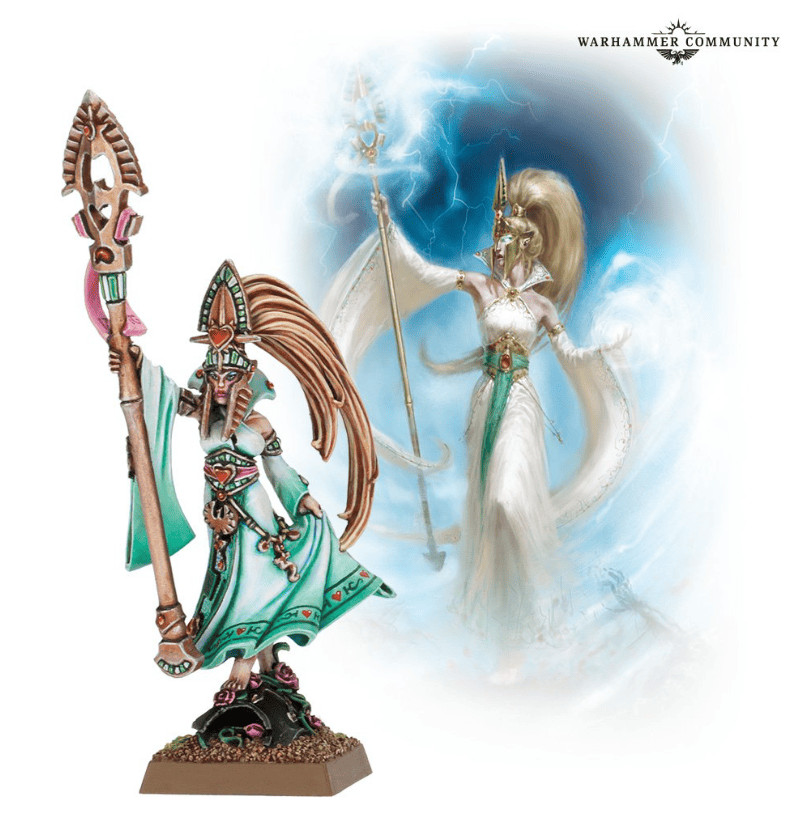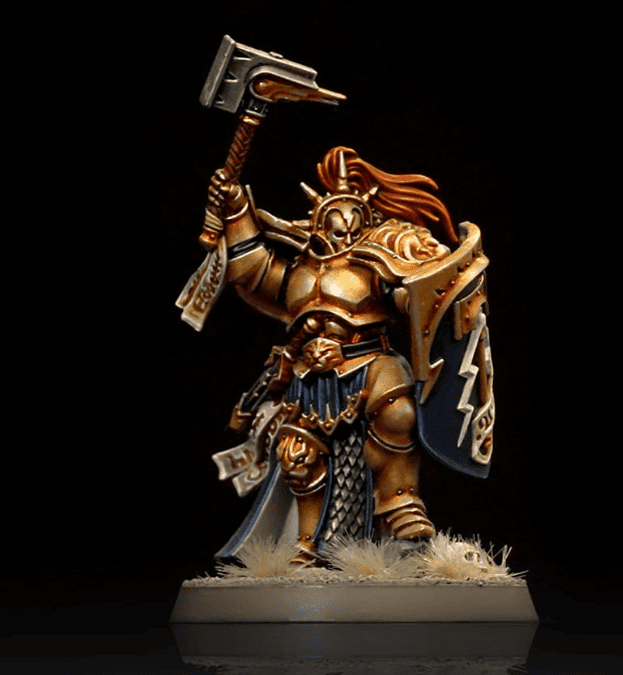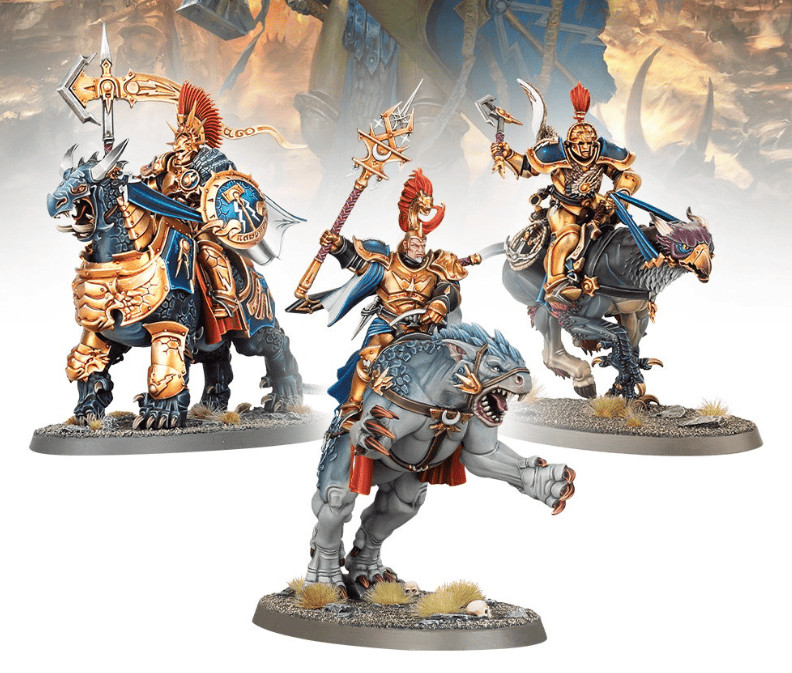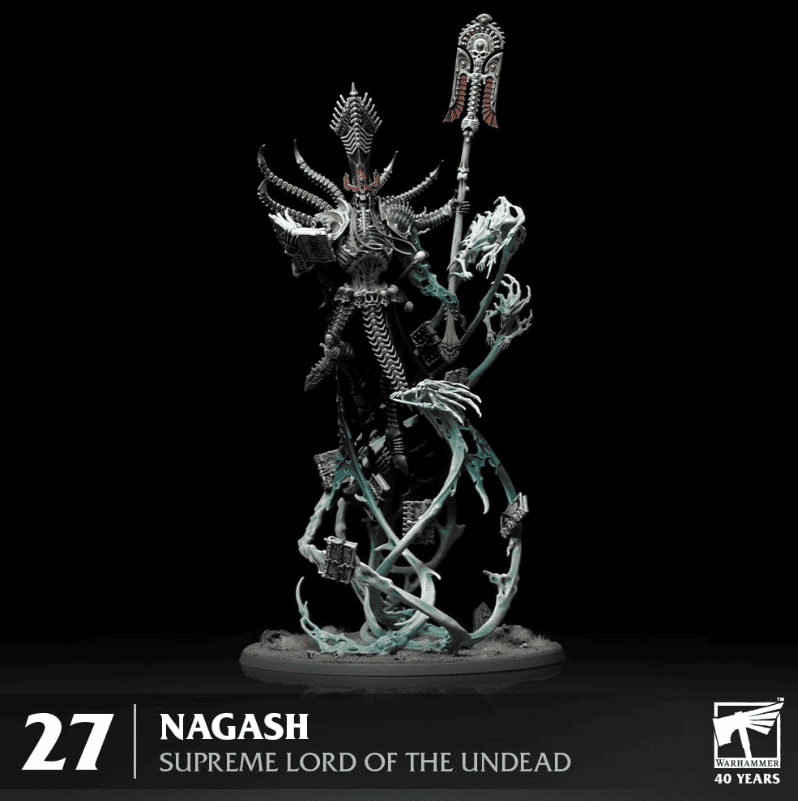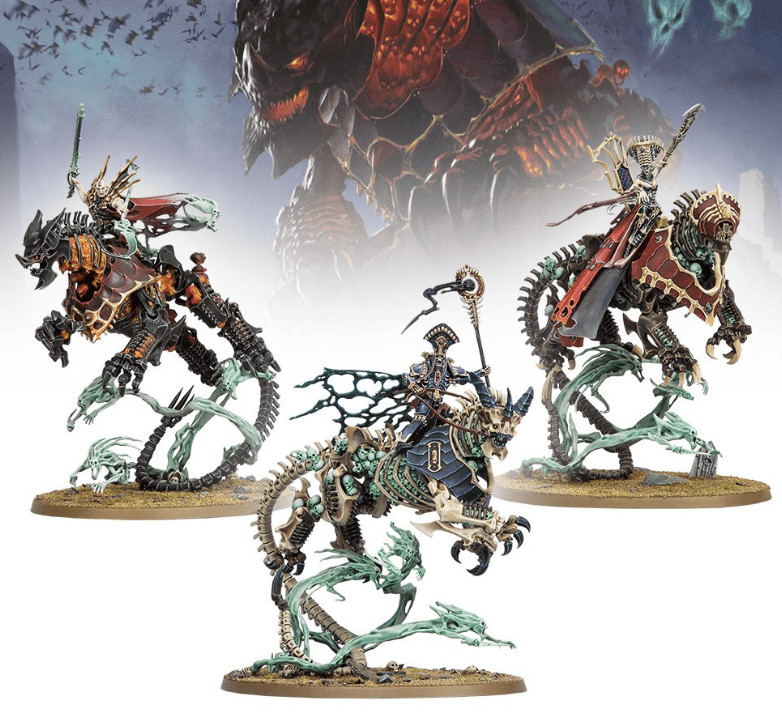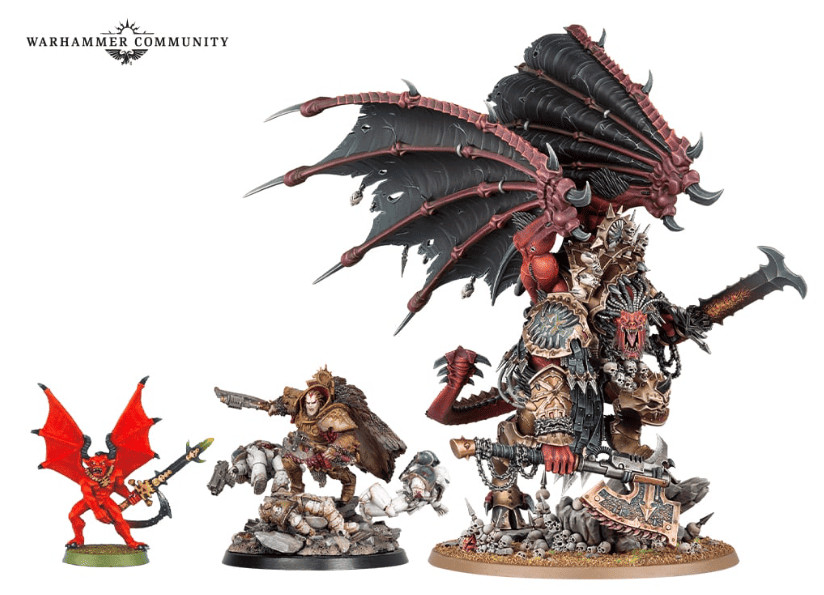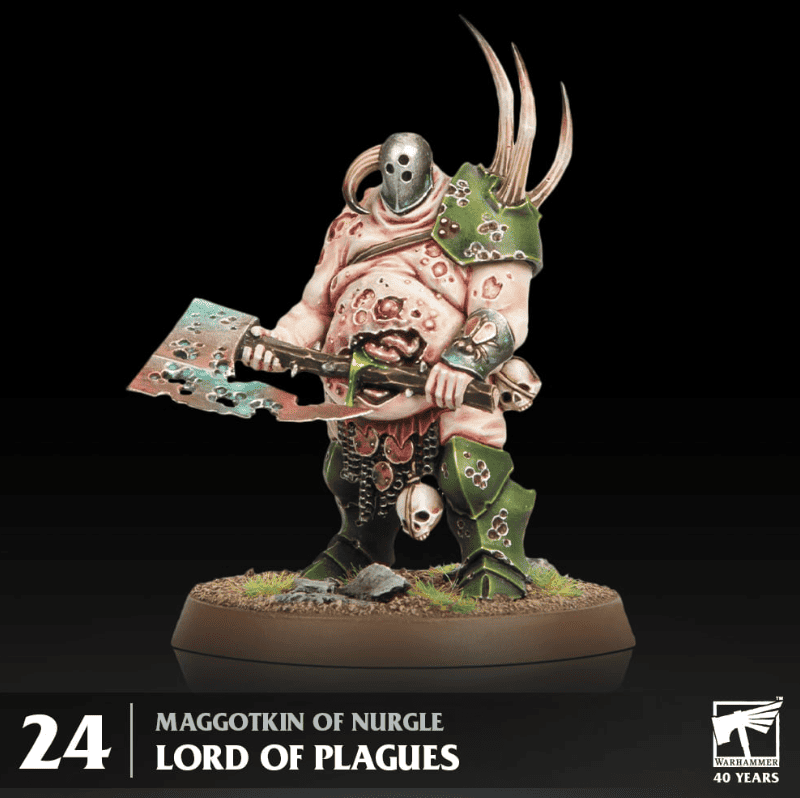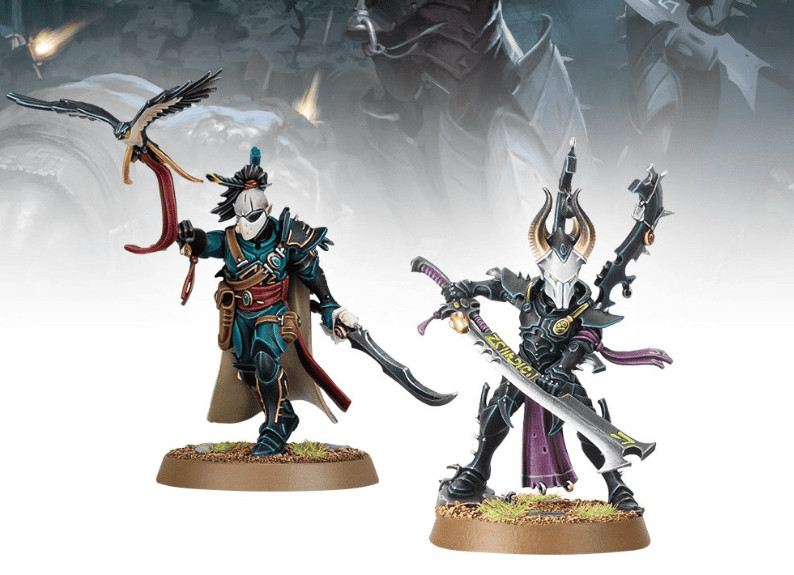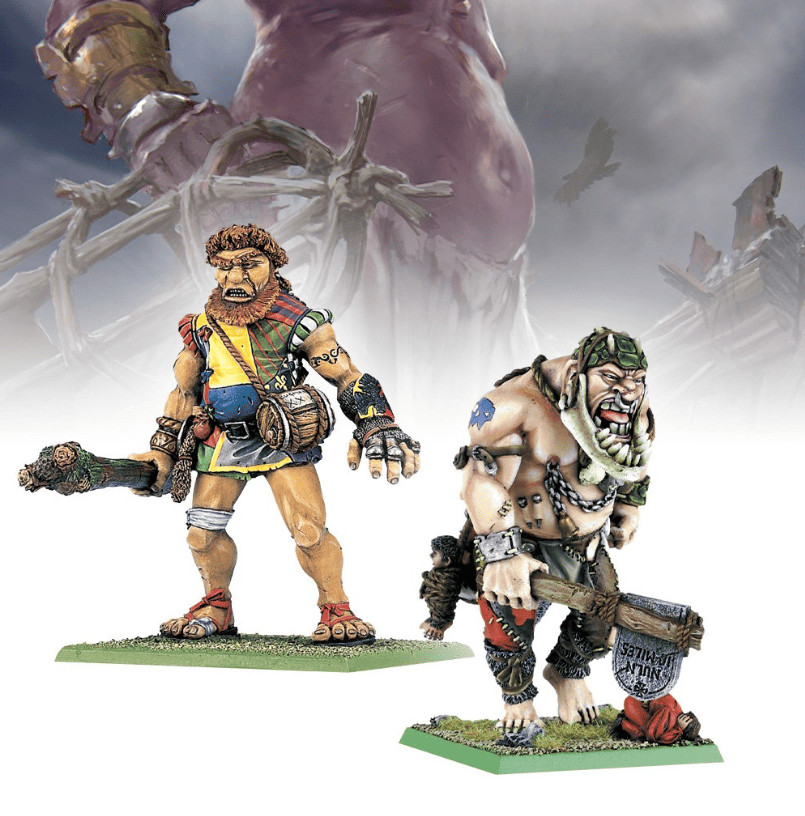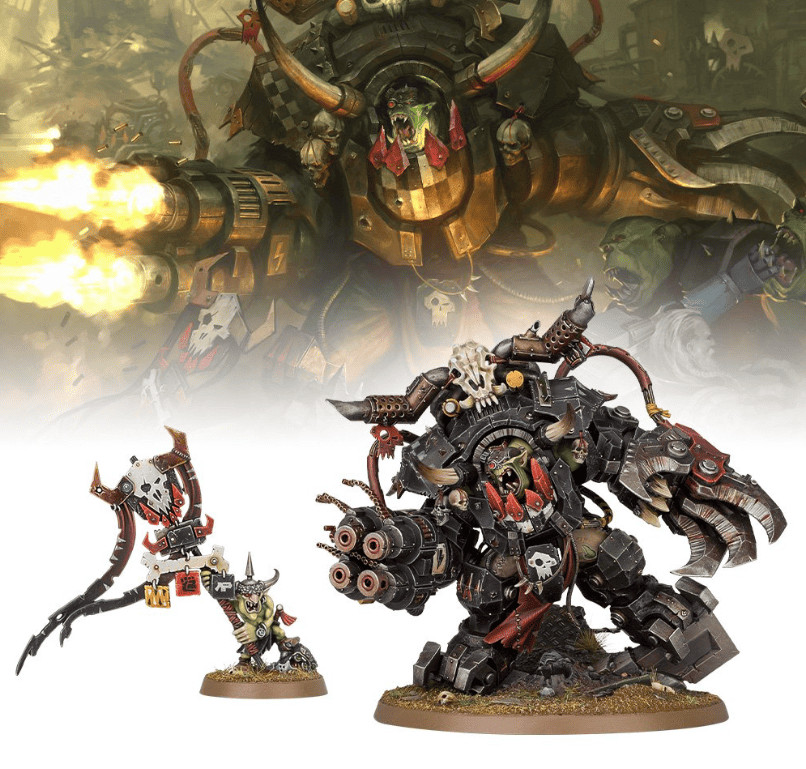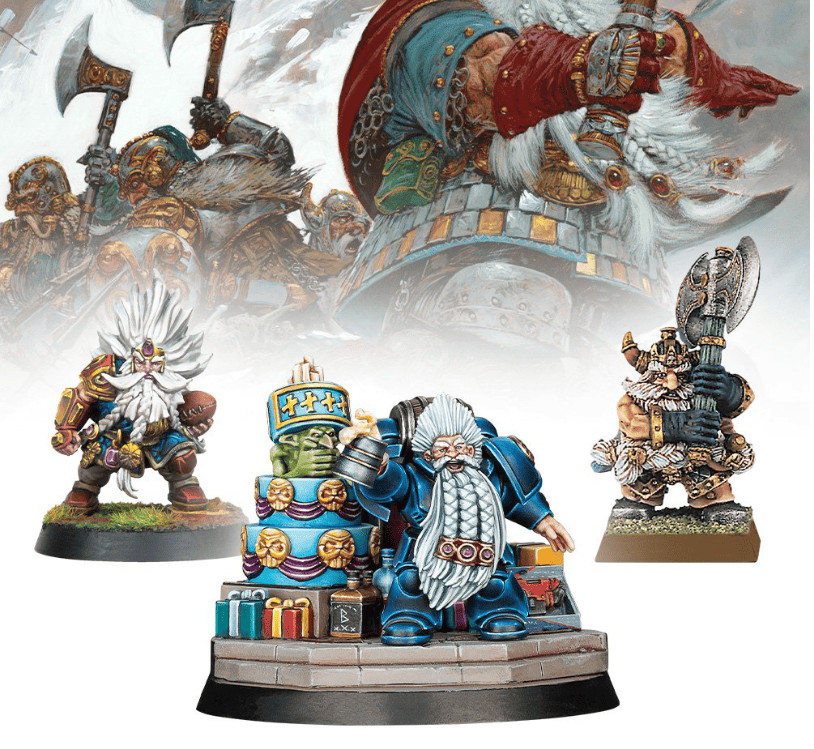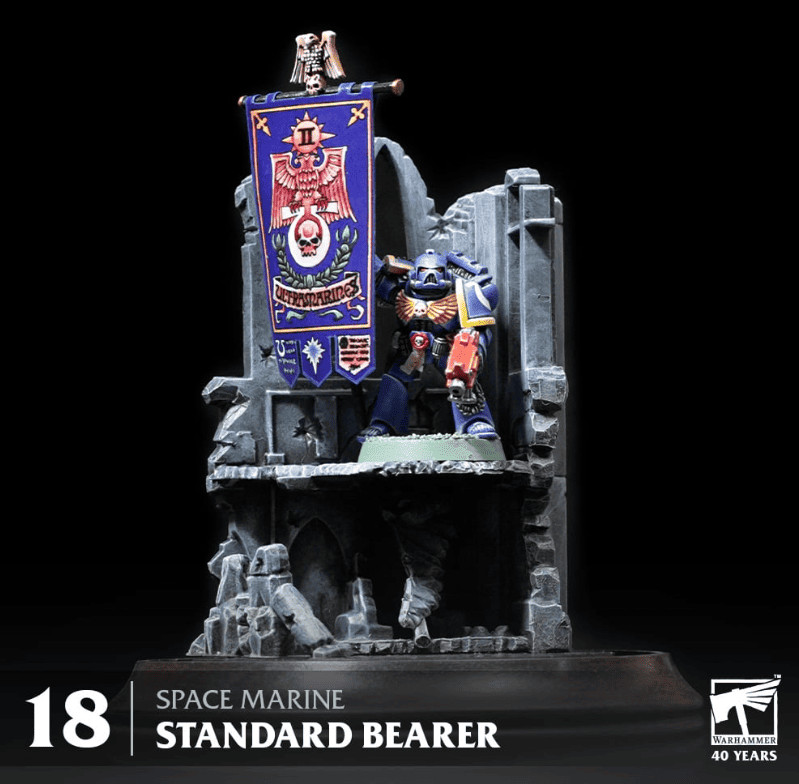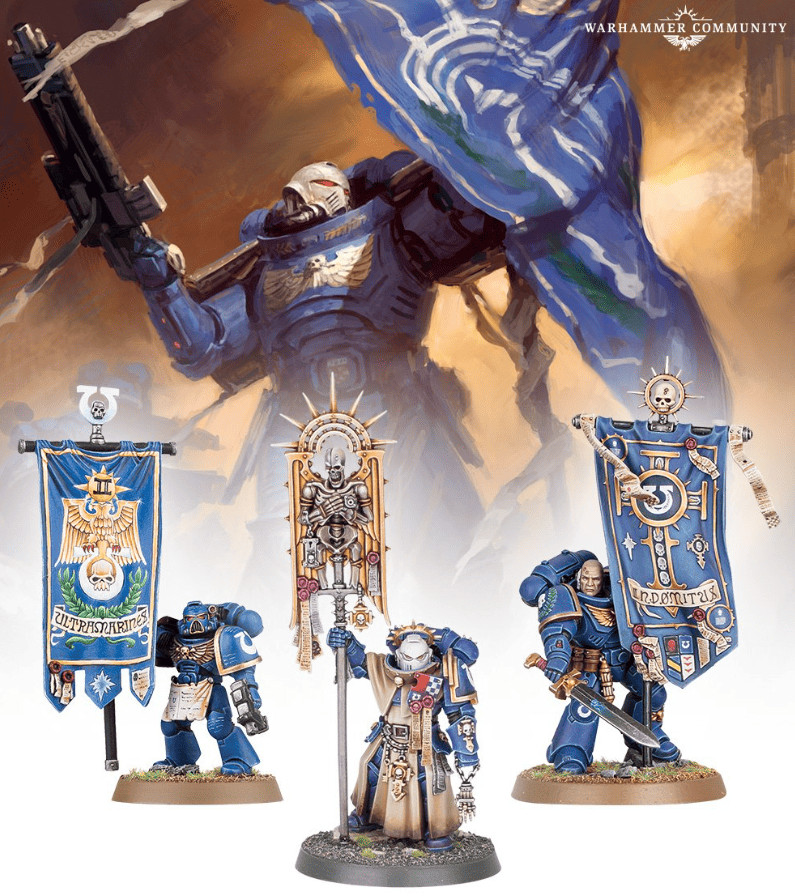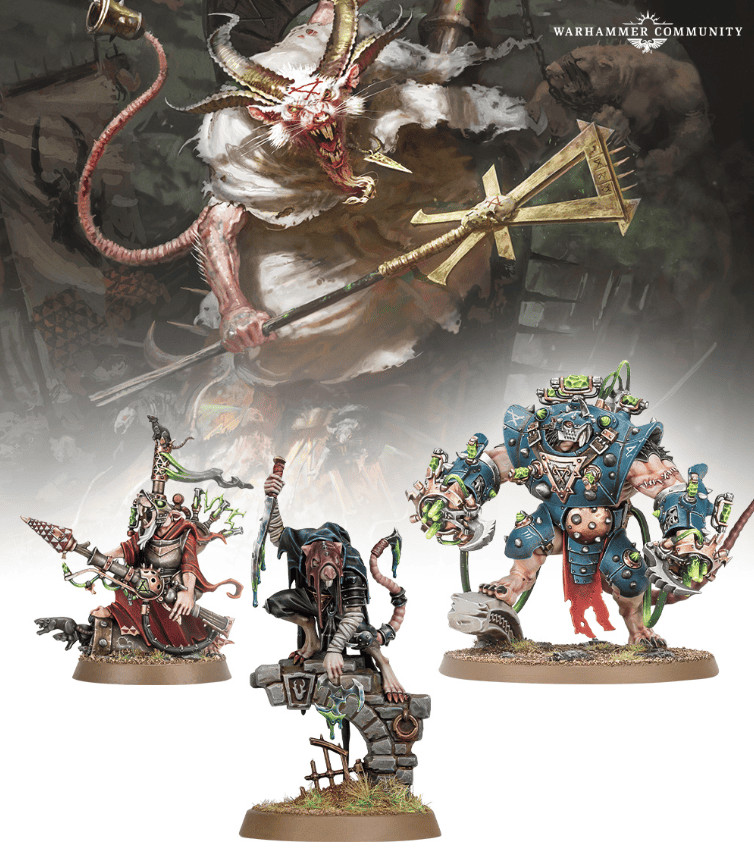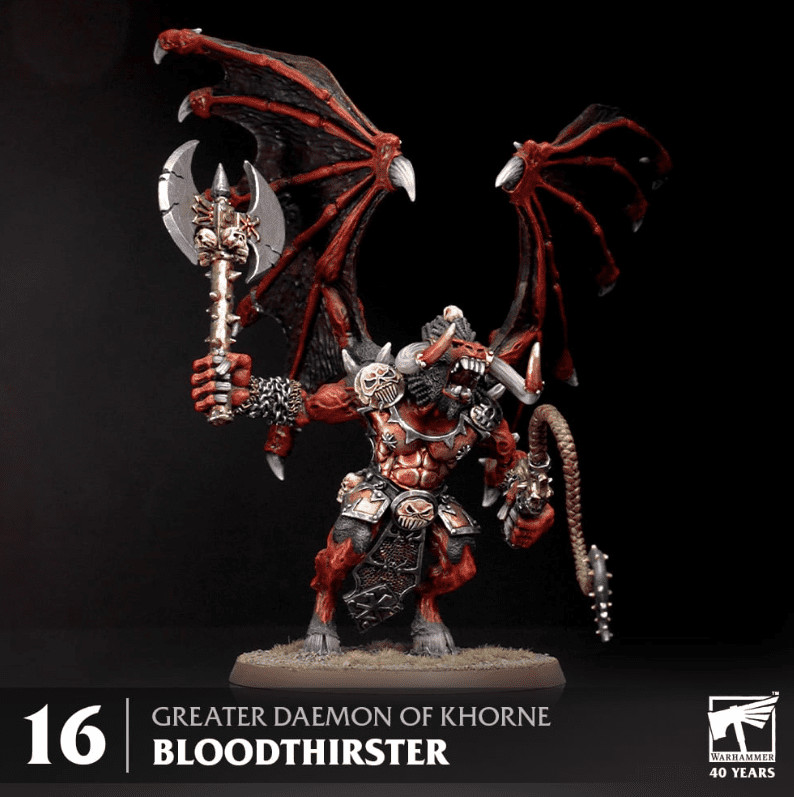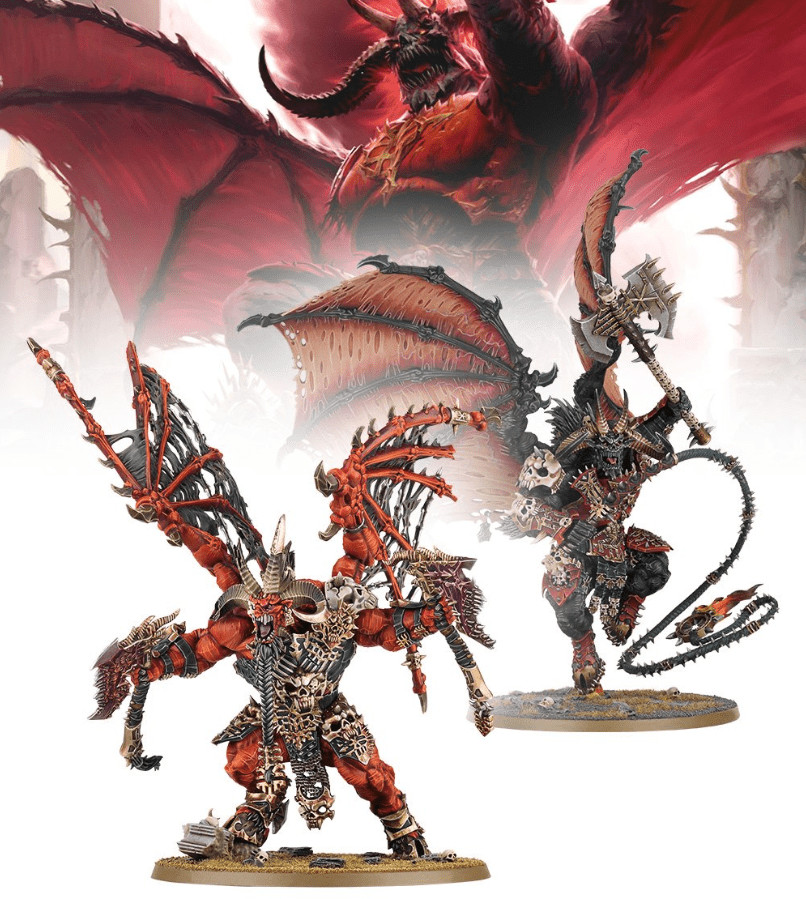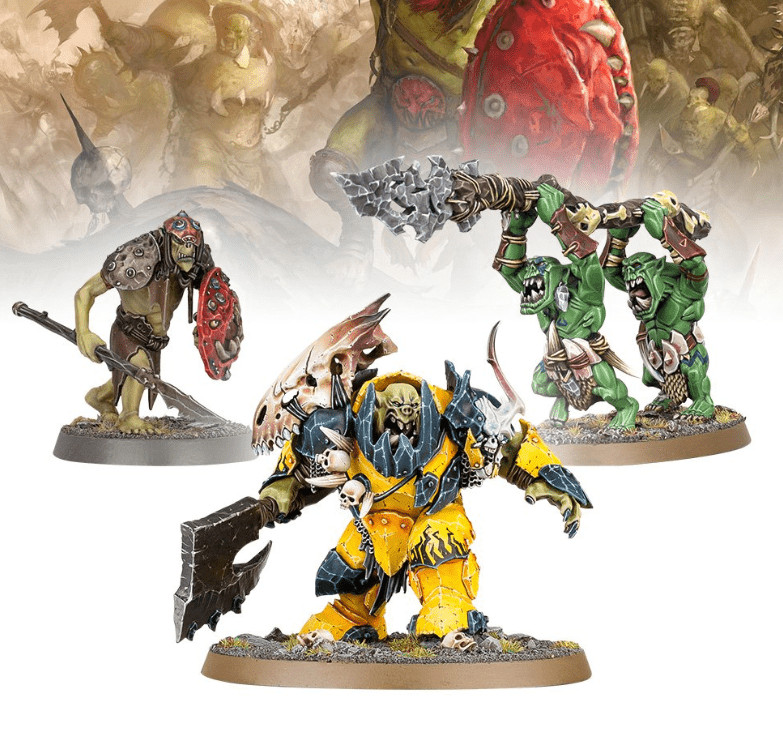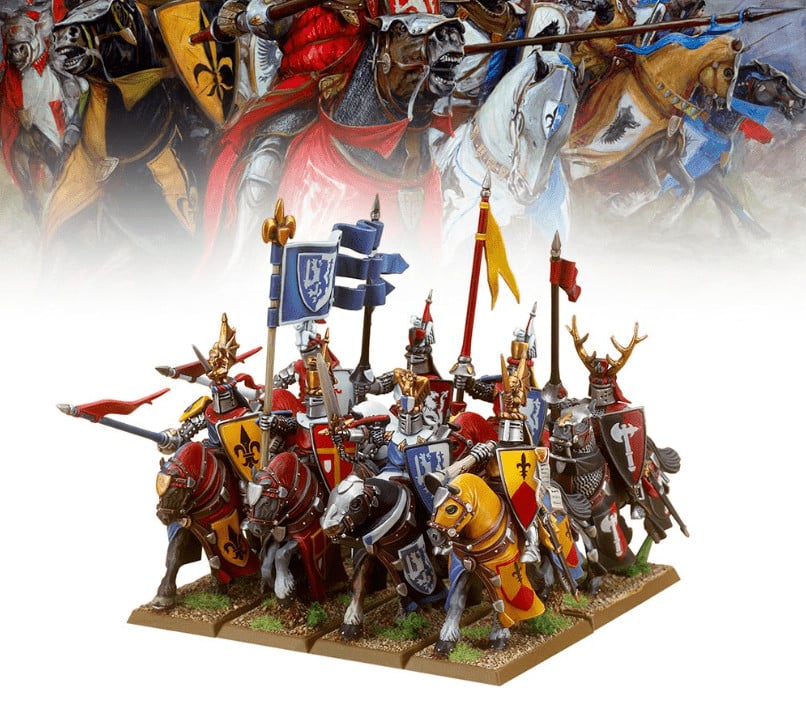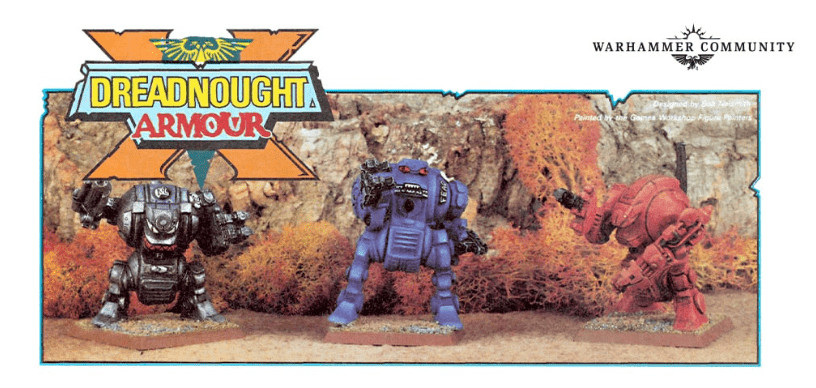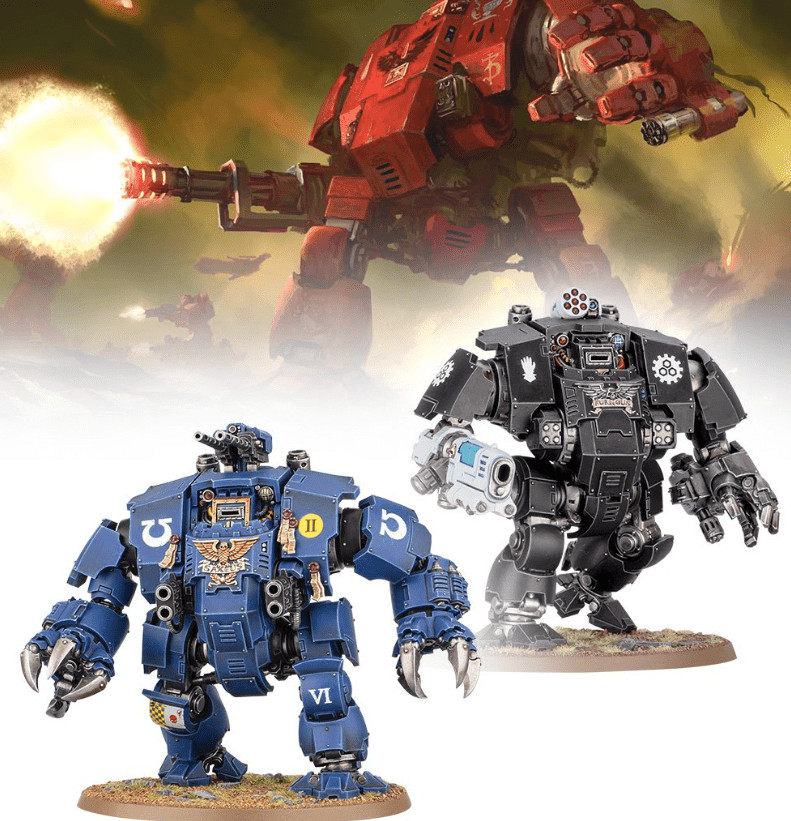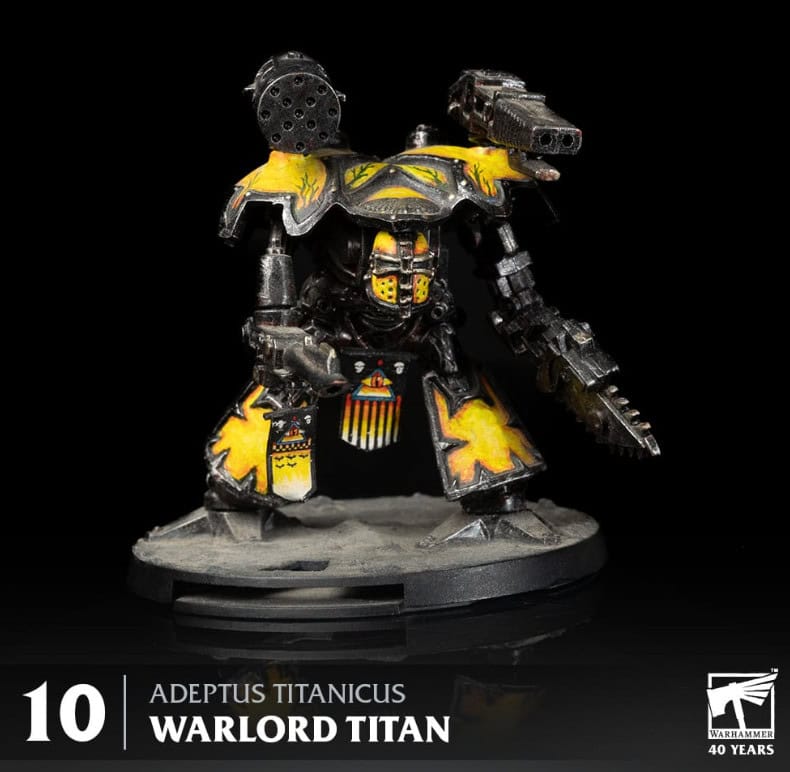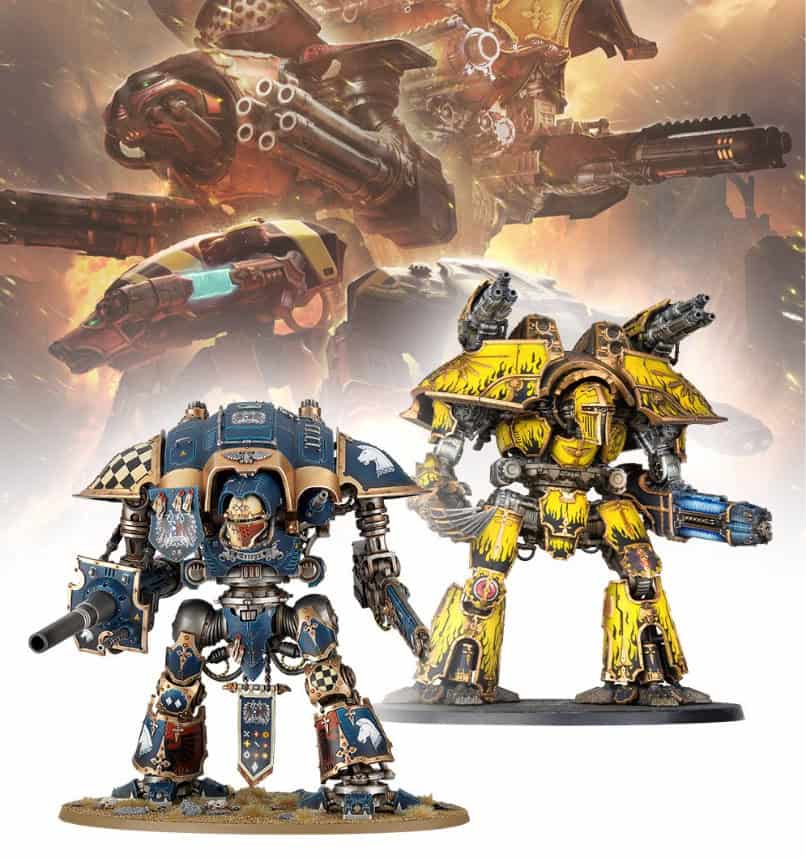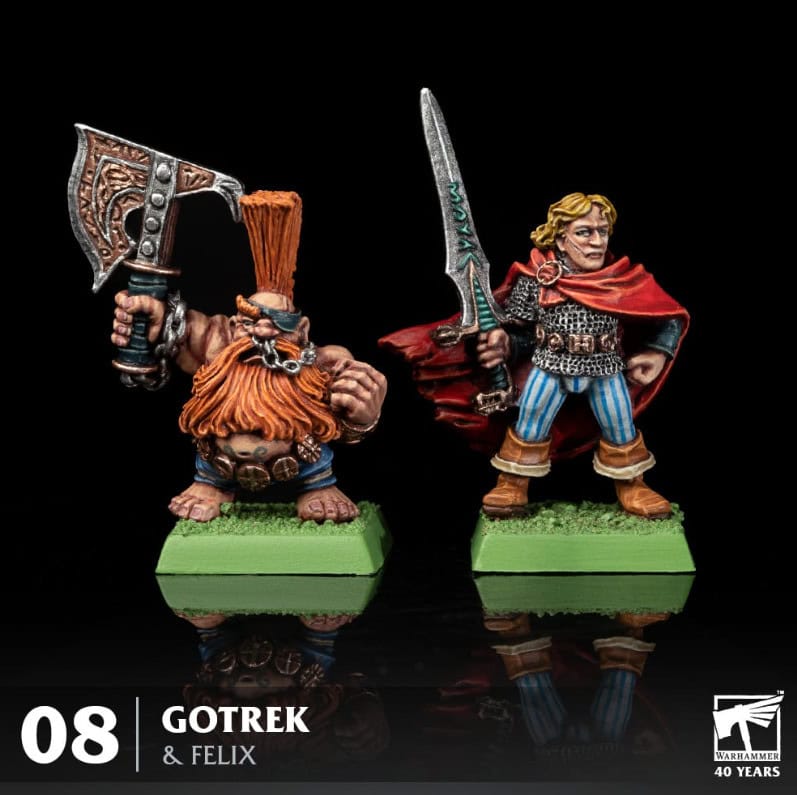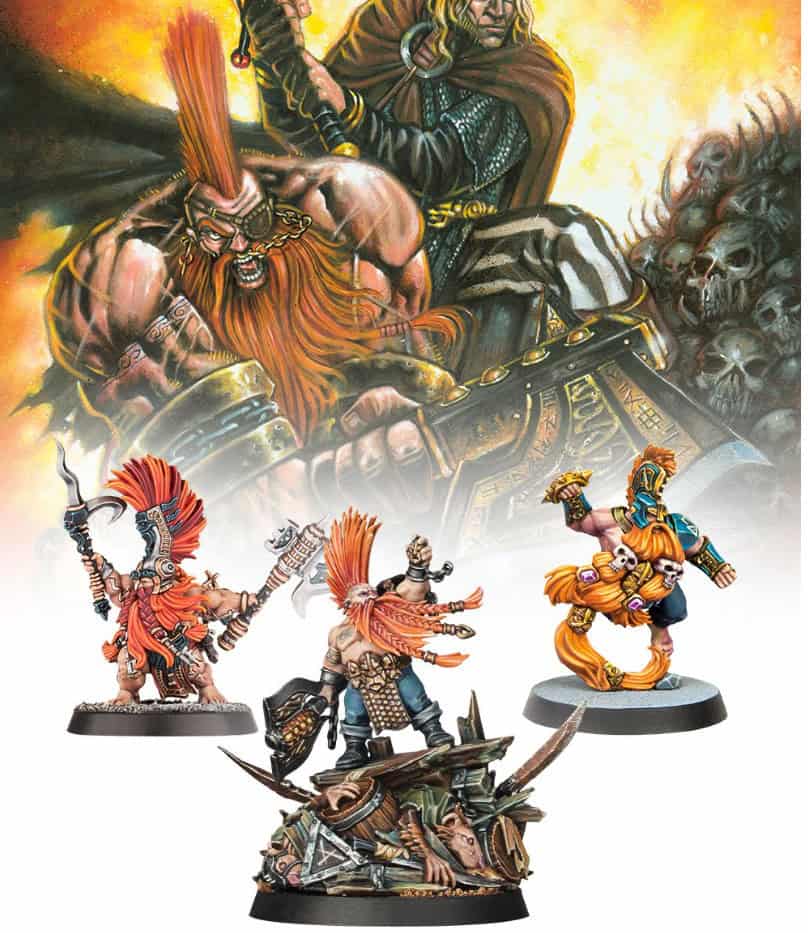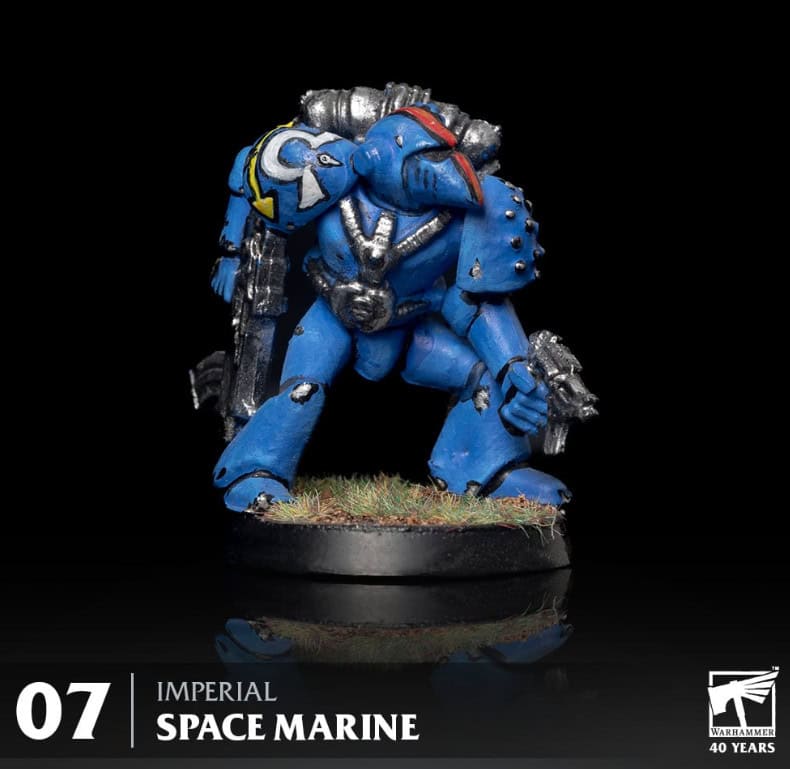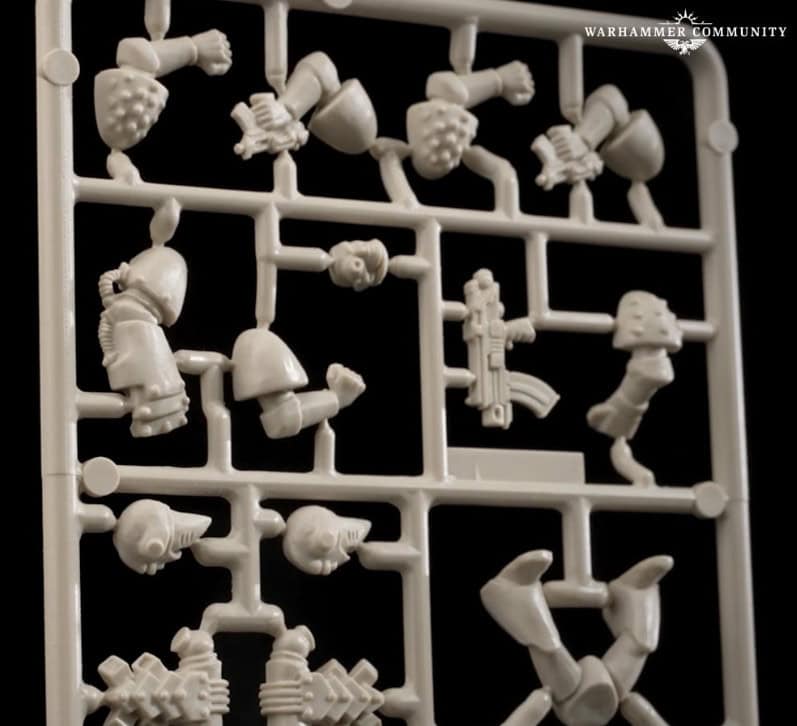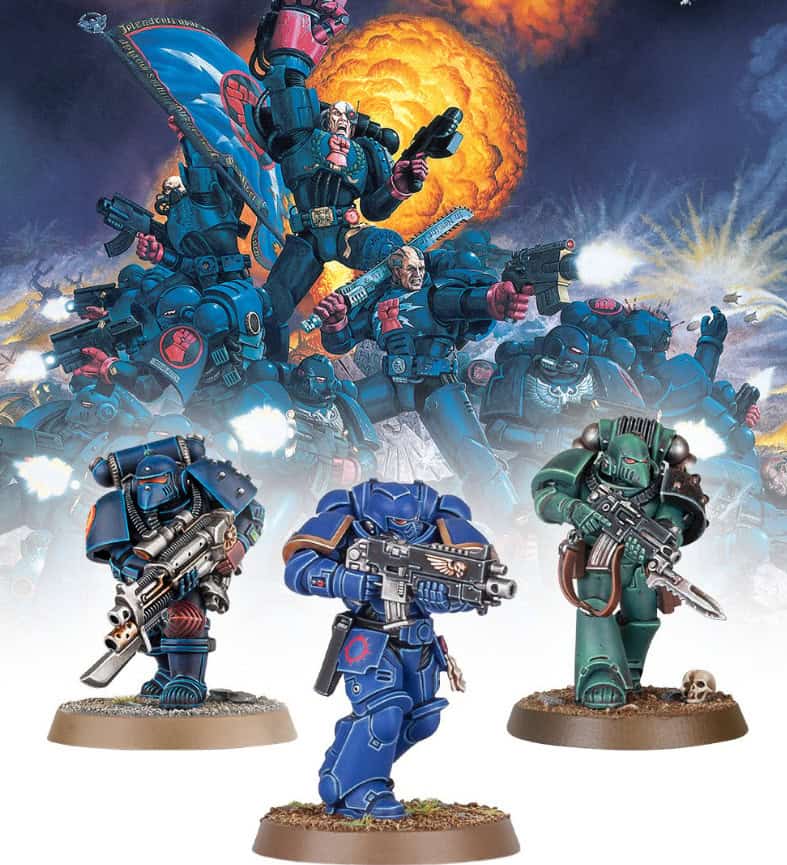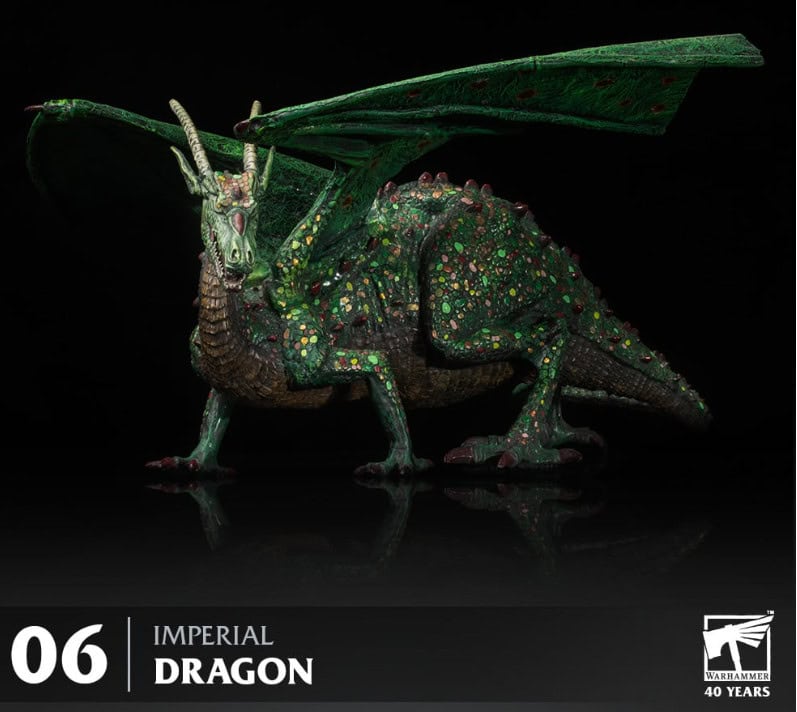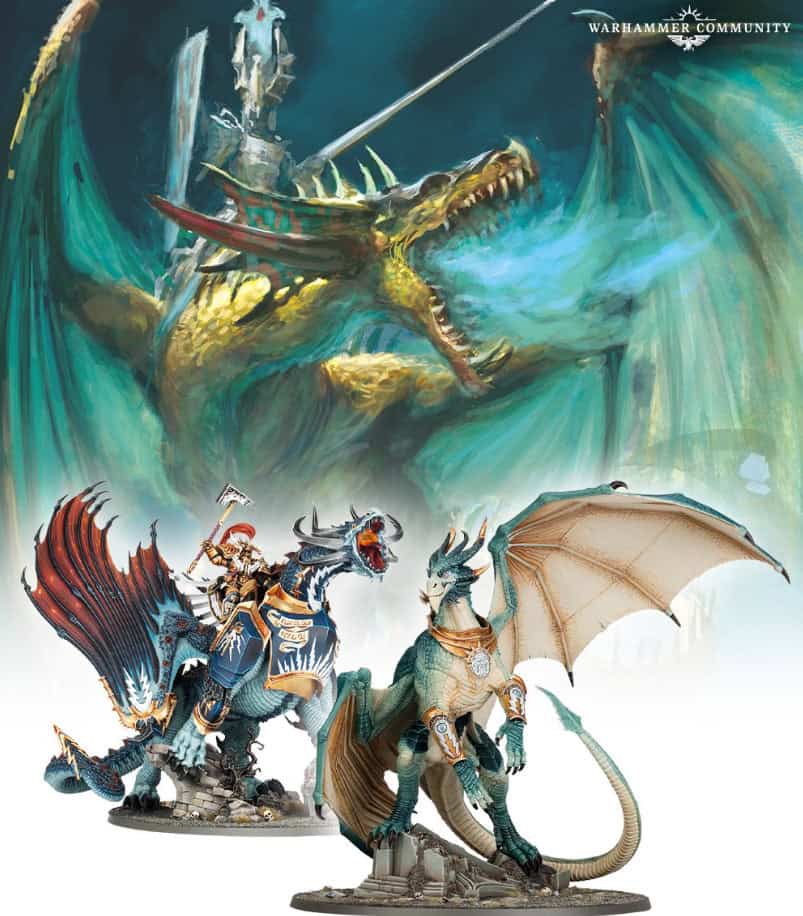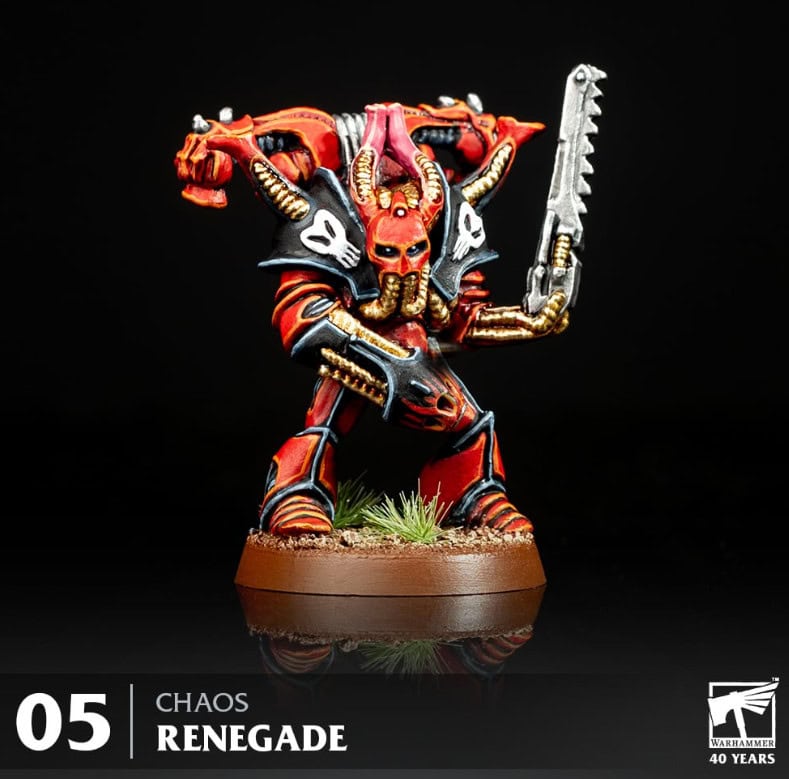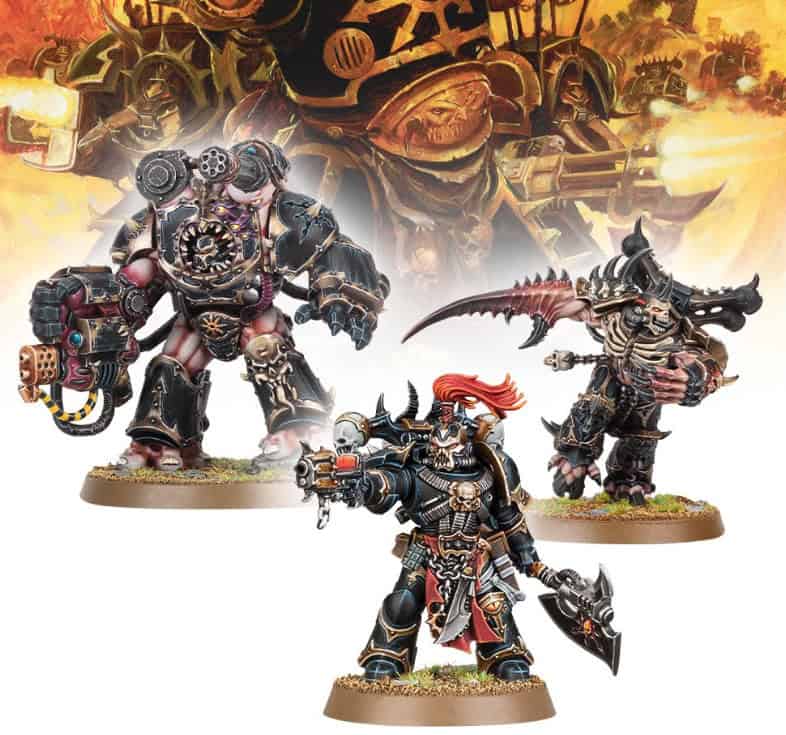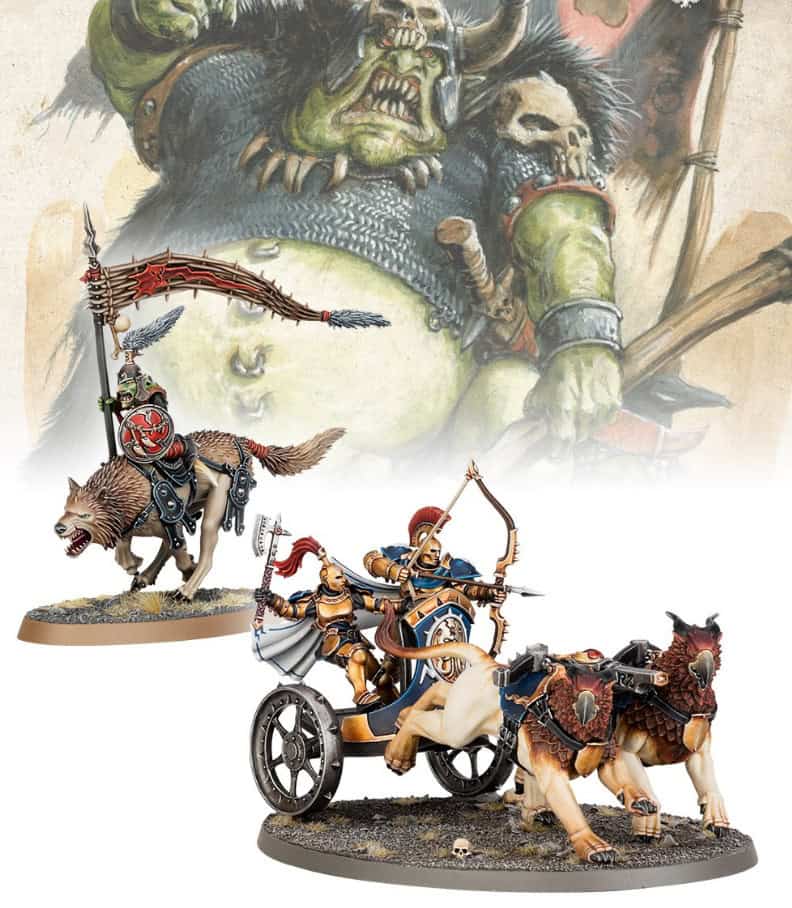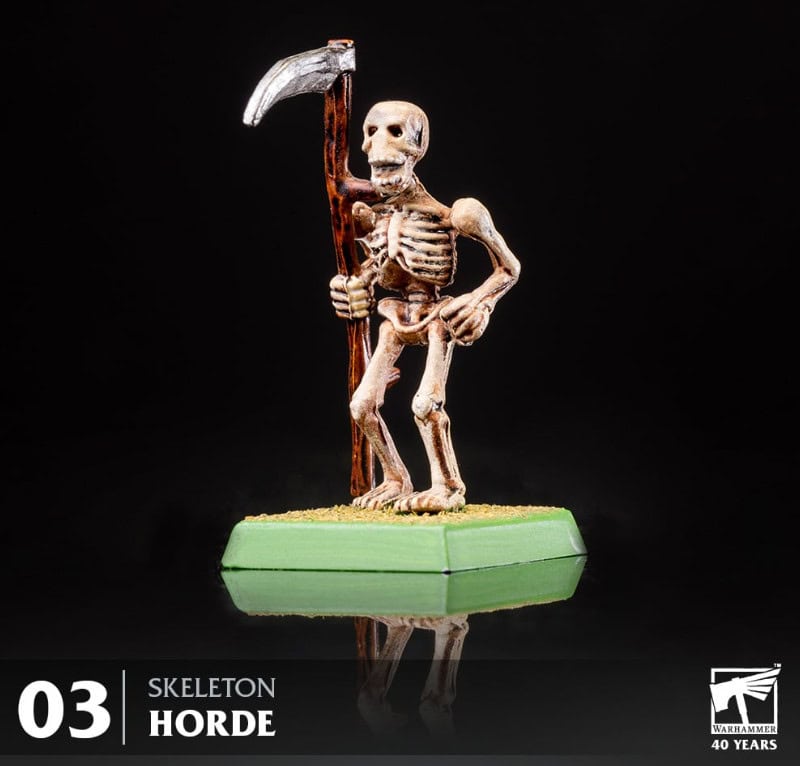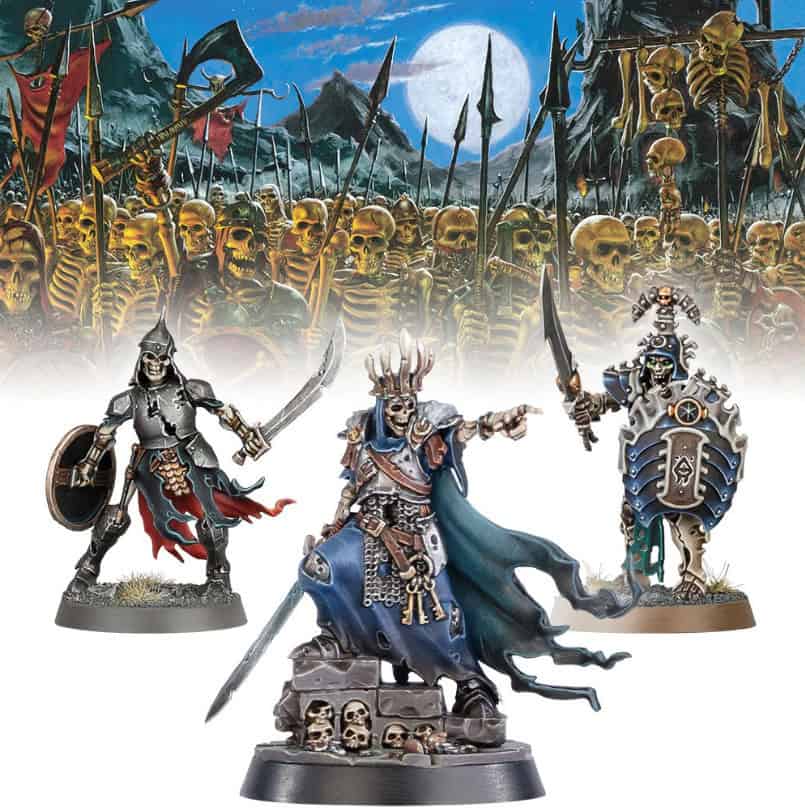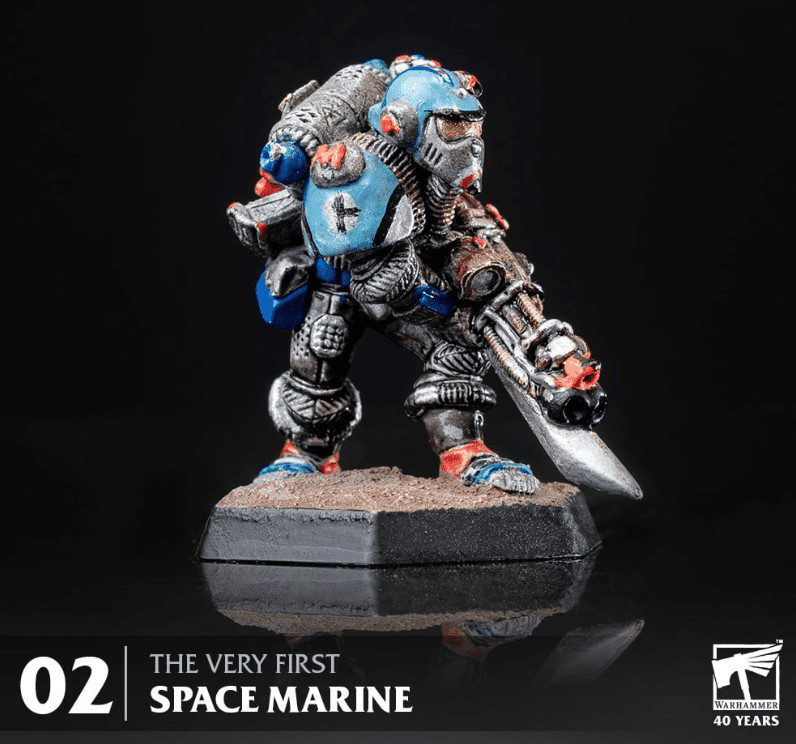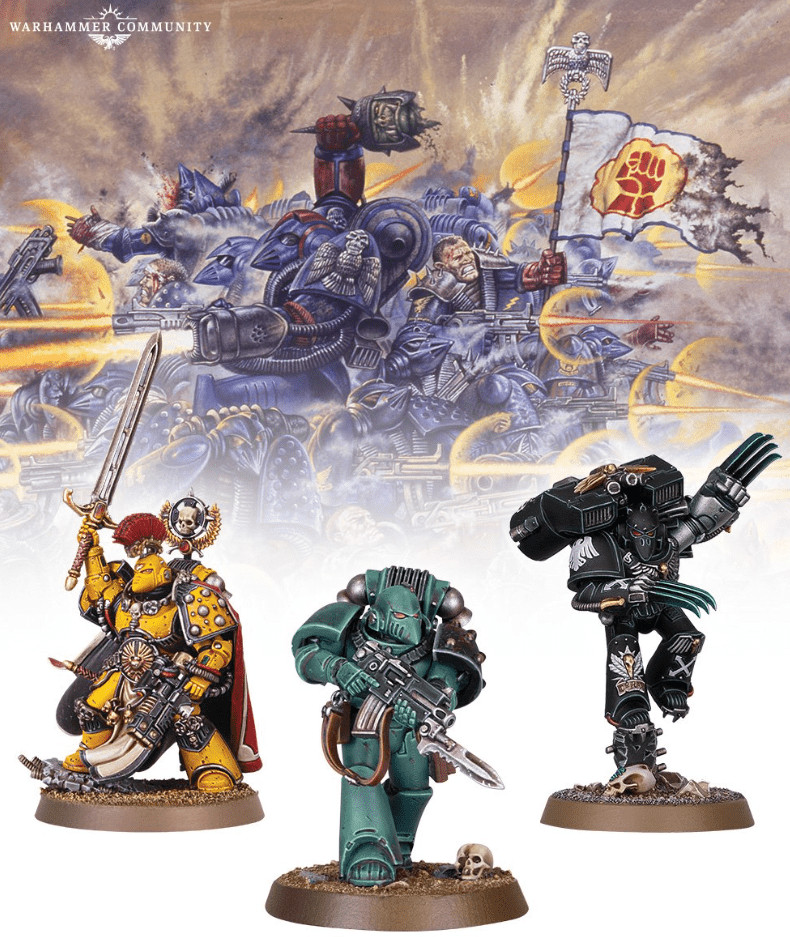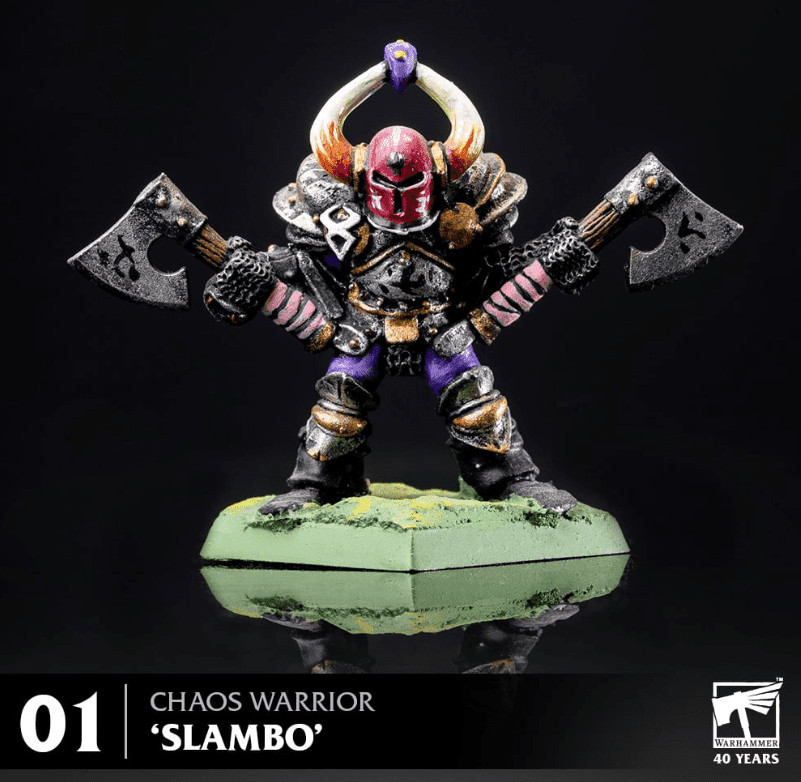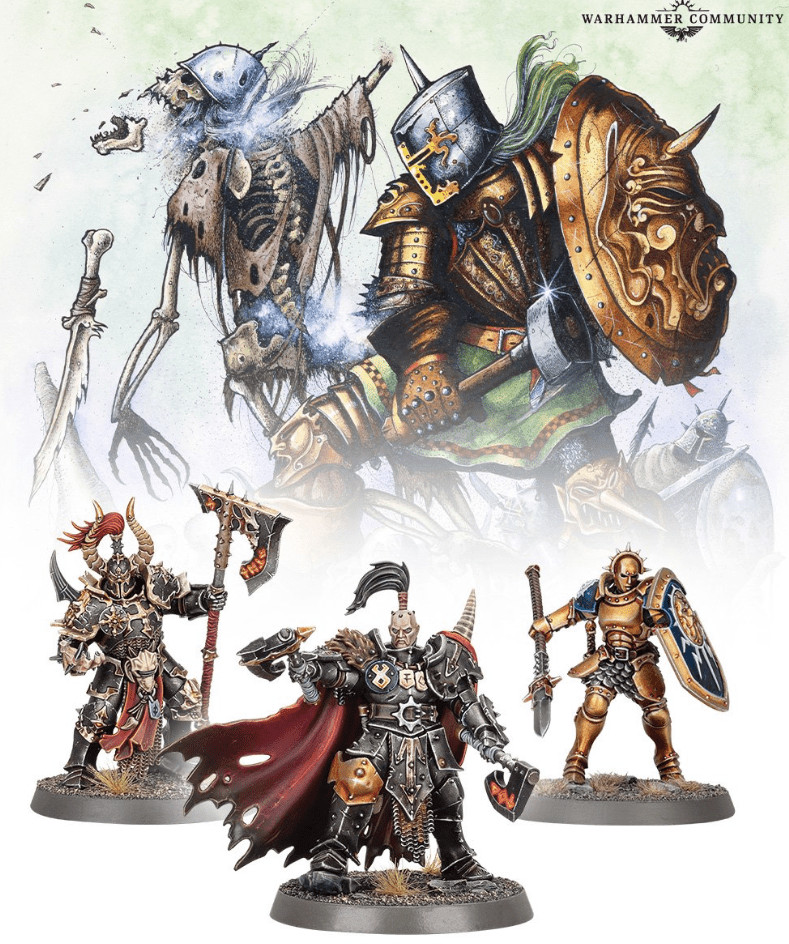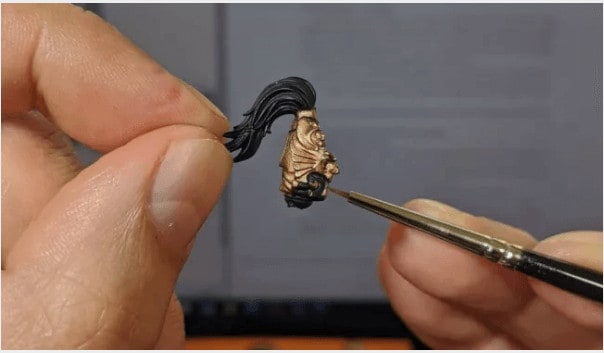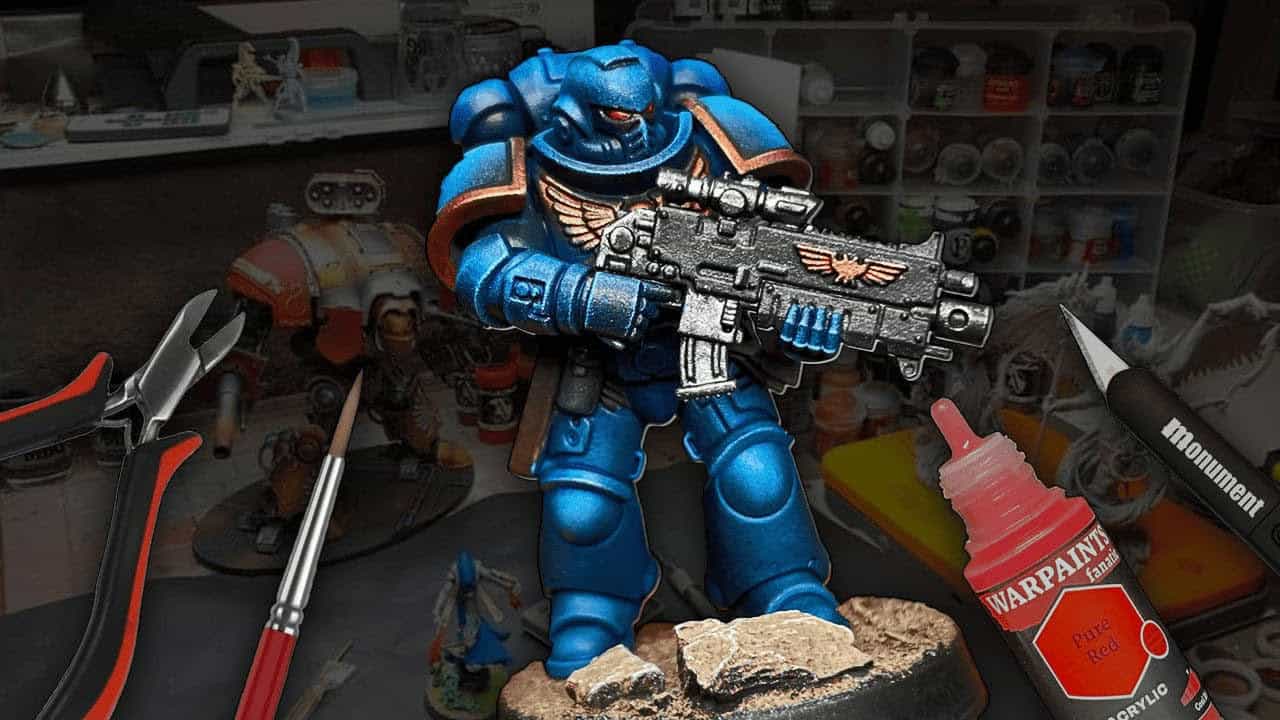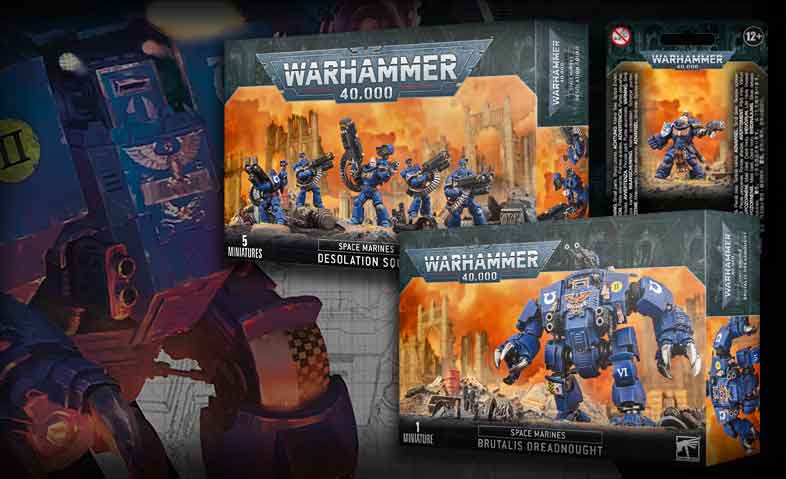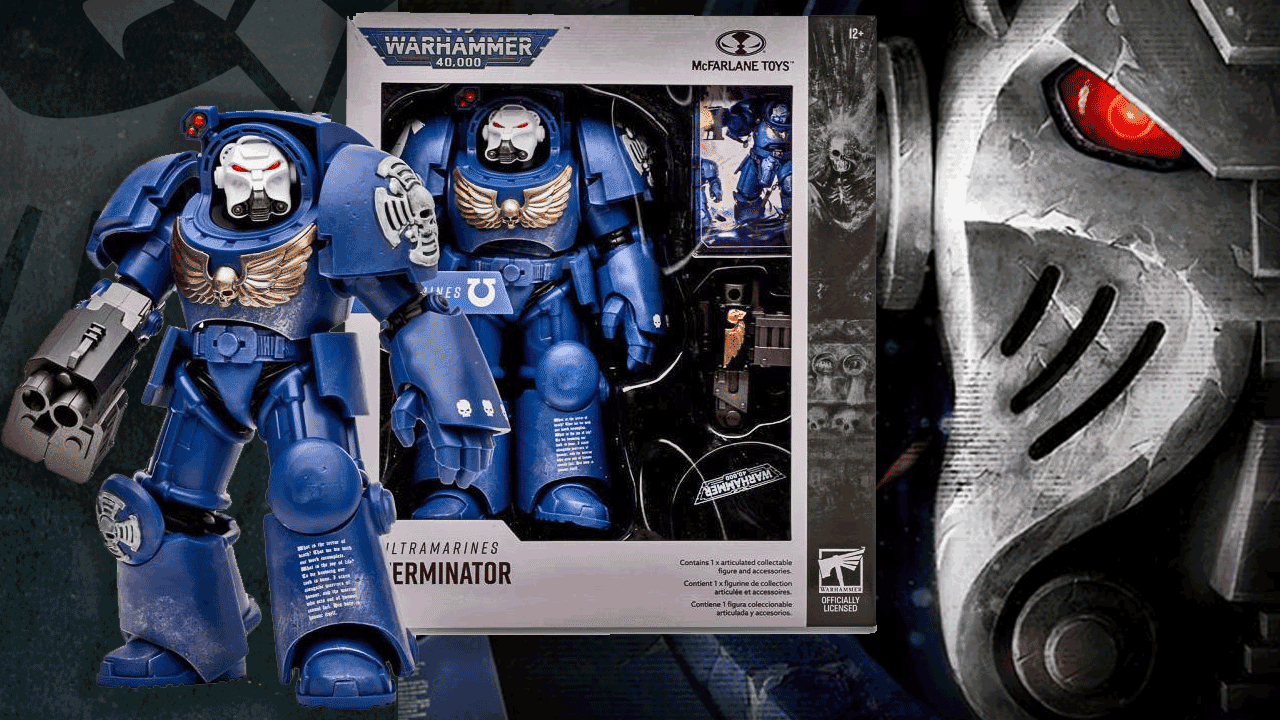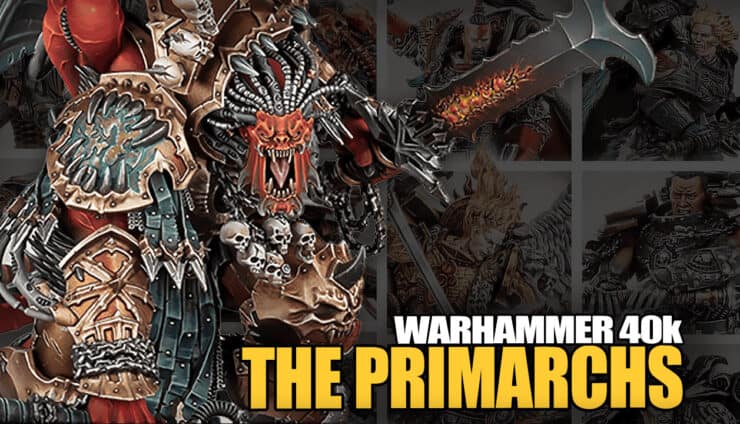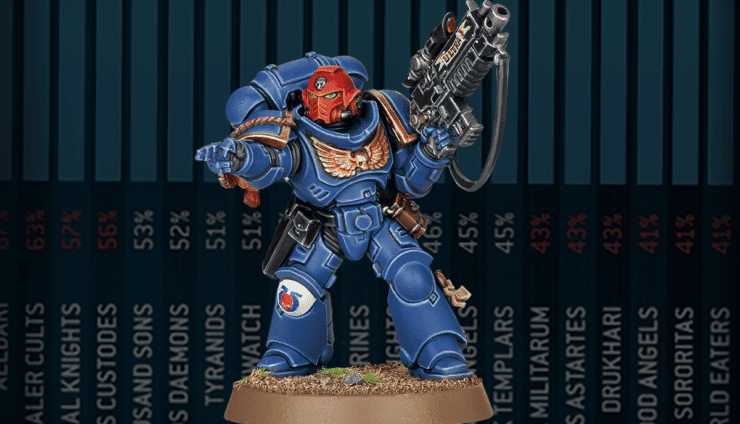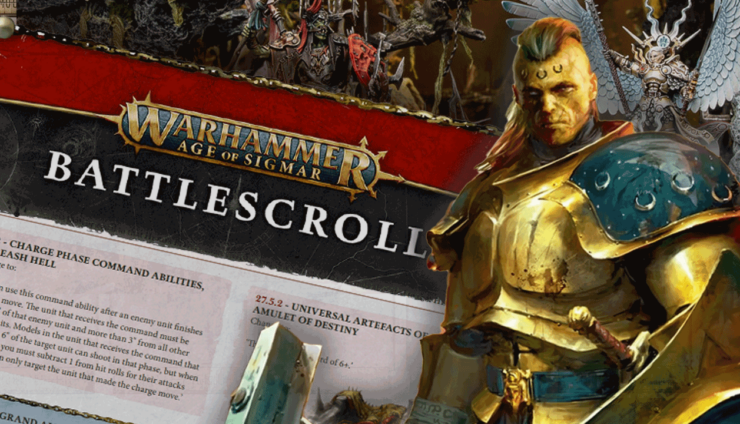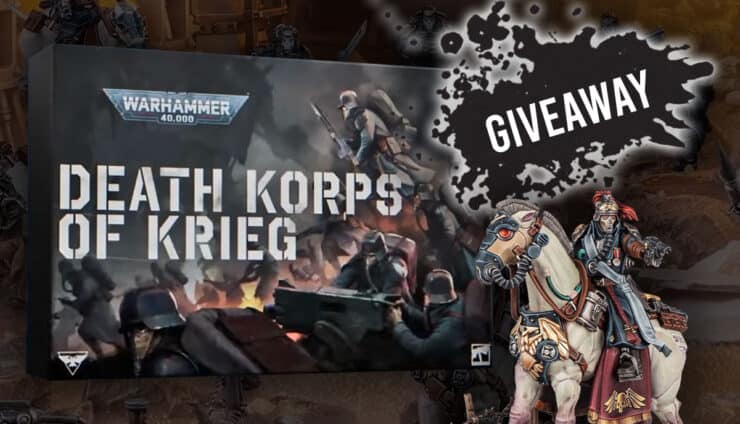Celebrate Warhammer’s 40th anniversary with a guide to the best Warhammer 40k miniatures and figures from 1983 to today!
Updated March 25th, 2025, by Rob Baer with the latest new 40k rules information and links to relevant content.
It’s time to celebrate four decades of Warhammer magic of figures! From the tabletop battles of 1983 to the jaw-dropping miniatures of today, Games Workshop has given us countless iconic figures that are more than just models—they’re pieces of history.
With Warhammer turning the big 4-0, let’s take a fun and fascinating stroll through the standout miniatures, codexes, and 40k figures that have defined the game and captured the imagination of hobbyists everywhere. Here is how these tiny warriors have evolved and why they remain the centerpiece of every collector’s dreams!
The Miniatures That Made Us
Over the years, Games Workshop has carved out a remarkable legacy in the world of miniature gaming. Renowned for their meticulous craftsmanship and intricate designs, Games Workshop miniatures have captured the hearts and imaginations of hobbyists worldwide.
With attention to detail and dynamic poses, Games Workshop has consistently raised the bar, creating stunning visual representations of fantastical worlds. The popularity of these miniatures stems from the immersive experience they provide, allowing players to bring their favorite characters and armies to life on the tabletop.
Whether collecting, painting, or engaging in strategic battles, Games Workshop miniatures continue to inspire and captivate hobbyists, fueling a passionate community of gamers and hobbyists. According to Games Workshop, these are the best Warhammers and 40k miniatures and figures of the last 40 years.
40: Freeguild Cavalier-Marshal
A weary yet steadfast commander carrying the weight of the Cities of Sigmar war effort, the Freeguild Cavalier-Marshal embodies the grit and determination of humanity facing the wild mix of terrifying creatures and legendary warriors in the Age of Sigmar.
The long-awaited Cities of Sigmar rework is finally here, and the miniatures are nothing short of spectacular! Plus, this particular model boasts one of the most impressive tactical rocks ever seen—what’s not to love?
That rhetorical question has now been answered with style and a hefty dose of blackpowder. Looking back to the World-that-Was, ordinary humans were often tasked with holding their ground against overwhelming odds—be it the chaotic legions of Chaos, nimble elven skirmishers, or rampaging orc hordes.
Those classic Empire models have been proudly representing humanity for decades, and their legacy lives on!
39: Tyranids Screamer-Killer
An offshoot of the fearsome Tyranid Carnifex, the Screamer-Killer is a towering nightmare encased in heavy armor. Unlike its bio-cannon-wielding relatives, this beast relies on four massive, razor-sharp talons to tear through anything in its path.
Its relentless aggression made it the perfect centerpiece for the Leviathan boxed set, standing head and shoulders—well, talons and blades—above most other miniatures in the box.
This model is peak Tyranid chaos: a massive, screeching alien bug ready to devour entire worlds. The Screamer-Killer figure has a storied legacy in Warhammer 40k, debuting back in 1991 during the Rogue Trader era—predating even the first Codex: Tyranids with a great miniature. Despite over three decades of updates, its signature features have remained gloriously intact.
The original model is a classic, and for longtime Tyranid players, it probably stirs up a bit of nostalgia and a lot of pride.
38 Warhammer Figures: Vashtorr the Arkifane
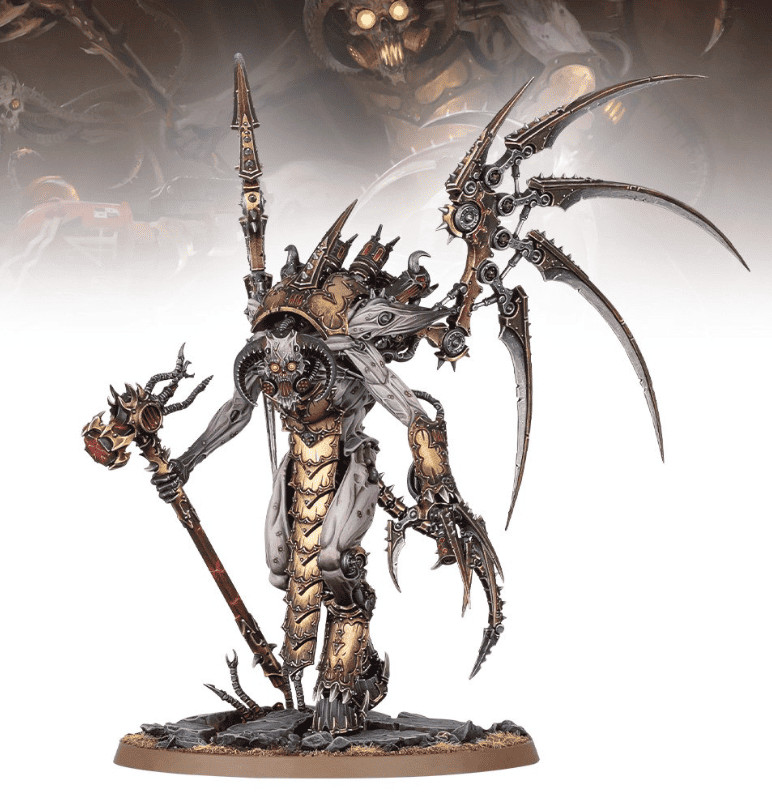
In a Warhammer Community interview, Vashtorr’s designer detailed how classic daemon engines like the Venomcrawler and Forgefiend influenced the Arkifane’s design. Unlike mortal machines corrupted by Chaos—such as Chaos Knights and Helbrutes—Vashtorr’s creations are entirely born of daemonkind, giving them a raw, chaotic edge.
Daemon engines have been a favorite among Warhammer 40k figures for years, and Vashtorr’s miniature takes their legacy to thrilling new heights.
37: Leagues of Votann Grimnyr
These legendary thinking machines are ancient, cryptic, and slowly fading, watched over with devotion by the Grimnyr, also known as Living Ancestors. These revered figures split their time between communing with the Votann deep in the sacred Fanes of Kinholds and wielding their collective intelligence and skeinwrought powers in battle to bolster the Kin and crush their enemies.
Fans have been hoping for Squats to return for years, and the wait was worth it! The range is fantastic, and this miniature stands out as a true gem.
The Hernkyn Pioneers nod to the old Squat Trikes, swapping wheels for sleek repulsor tech. The Einhyr Hearthguard sport heavy-duty exo-armor that feels like a modern take on classic Terminator suits, while the Hekaton Land Fortress draws inspiration from the epic-scale Land Train of the past.
It’s been ages since Squats graced the scene, and the updated designs strike the perfect balance between nostalgia and modern flair
36: Lord Kroak
Over five generations of Slann Mage-Priests have left their mark on Warhammer figure history, with the first generation renowned as the greatest masters of arcane power. Tragically, that illustrious line met its end millennia ago during the brutal, drawn-out war against Chaos, a conflict that ultimately saw the Warhammer world fall.
This latest model is a standout among the best Warhammer miniatures and figures (40k or AoS)—if casting epic spells and smiting Chaos is your goal, Lord Kroak is the ultimate choice!
The Seraphon, as they became known, didn’t simply fade into obscurity. As the realms formed around Mallus, the surviving Slann, now honored as Starmasters, stepped into the role of guardians for the new lands. Peace reigned for a time, but with Archaon’s return, the forces of Order were driven back to Azyr to regroup and plan their reclamation of the Mortal Realms.
Slann Mage-Priests have always been some of the most iconic Warhammer figures, and there’s something undeniably epic about a giant lizard wizard lounging on a throne, exuding raw fantasy vibes!
35: Black Coach
While much of the Warhammer world shifted and evolved, the iconic design of the Vampire Counts’ Black Coach remained a timeless figure and miniature, enduring until the End Times brought everything to an apocalyptic close. In the eerie landscapes that followed, spectral undead rose again, now commanding sleek, sinister carriages to haunt the living.
The Black Coach is an absolutely stunning model—there’s nothing quite as terrifying as a ghostly cart barreling across the battlefield at breakneck speed.
The original Black Coach had an interesting quirk: it was pulled by skeleton horses that were standalone miniatures with their own bases. As a result, the coach itself originally had no base, eventually being packaged with a comically large square base to accommodate the entire ensemble.
Even now, the classic design of the old model remains an unmistakable and enduring part of Warhammer’s legacy.
34 Best Warhammer Figures: Plastic Aeronautica Imperialis Thunderhawk
Initially met with skepticism due to its lighter build, the Thunderhawk quickly silenced critics with the sheer firepower of its Turbo-laser Destructor, making it a formidable ground attack vehicle in addition to its transport capabilities.
By the 41st Millennium, it had become a staple of Space Marine air support, featuring multiple iterations in metal and resin. Fans, however, had long been clamoring for a plastic version—and in 2021, GW delivered… but only for Adeptus Titanicus.
While the plastic Thunderhawk for Warhammer figure and miniature 40k remains elusive, the miniature for AI still looks incredible and keeps hope alive for the big release fans have been dreaming of!
Flashback to 2017, when the classic resin model was retired and replaced with a sleeker, updated version. If you’re curious, this is the one currently showcased on the Forge World webstore.
The current resin Thunderhawk is undeniably impressive, but let’s be honest—wouldn’t a plastic version be the ultimate upgrade?
33: Primaris Intercessors
Debuting in the iconic Dark Imperium box set, the Intercessor symbolized a bold new era for the Adeptus Astartes—sleek, practical, and undeniably stylish. These enhanced Space Marines, straight from Cawl’s gene-labs, bolstered struggling forces like the defenders of Baal and even formed entirely new Chapters, expanding the reach of the Imperium across the galaxy.
The arrival of Primaris Marines sparked plenty of debate (which hasn’t entirely gone away), but there’s no denying the miniatures look fantastic and opened up an exciting new chapter for Space Marine figures and minaitures in Warhammer 40k.
Unlike the older Marines, who revered their power armor as sacred relics, the Primaris Marines embraced purpose-built designs tailored to their roles. Intercessors wore the versatile Mk X Tacticus armor, echoing the balance of classic designs, while leaders and assault units like Inceptors donned the bulkier Mk X Gravis armor.
Since their introduction, GW has unleashed a staggering array of Primaris-scale models, and honestly? They all look incredible.
32: Amalia Novena
Sister Superior Amalia Novena brings to life Karl Kopinski’s iconic artwork, perfectly capturing the spirit of the Sisters of Battle—a fierce, uncompromising warrior sisterhood reclaiming their place in the 41st Millennium. It’s one of the best Warhammer 40k miniatures and figures out there, with an uncanny accuracy to the original art that has fans thrilled.
John Blanche’s vision defined the Sisters of Battle for years, with his platinum-haired warrior posing triumphantly atop skeletal remains, surrounded by a chorus of gothic eccentrics and hovering cherubs. This imagery was first immortalized as the Canoness Veridyan resin model, but other legendary artwork has also found its way to the tabletop.
From the limited edition Tariana Palos inspired by Codex art to Ephrael Stern from Warhammer Monthly, these designs continue to stand out as fan favorites.
The Sisters boast some of the most striking artwork, miniatures, and figures in Warhammer 40k, and seeing more of these iconic designs translated into miniatures is a real treat. Here’s hoping GW keeps them coming
31Best Warhammer Figures: Genestealer Cult Patriarch
Perched on an industrial pipe, this Genestealer Cults Patriarch embodies the insidious nature of the Cults, perfectly capturing their knack for infiltrating densely populated manufactorum worlds. With one clawed hand resting on its temple to project its dark will, the model’s crescent-shaped silhouette cleverly mirrors the Cults’ iconic symbol seen on banners and vehicles.
Coming in at number 31 on the Best Warhammer 40k Miniatures and Figures Chart, this Patriarch oozes character. After all, if you’re leading a rebellion from the shadows, you’ve got to look the part!
The Genestealer Cults first emerged in the late ’80s during the Rogue Trader era, featuring two distinct Patriarchs: a throne-bound mastermind who let others get their claws dirty and a more hands-on, decked-out version ready for action.
While the latest miniature and figure brings a modern edge to the Patriarch, its roots in Warhammer 40k history are undeniable, with the throne-sitting original remaining an all-time classic.
30: Roboute Guilliman
As Warhammer 40,000’s sprawling narrative advanced, the idea of a Primarch returning felt more like a distant dream. These legendary figures seemed confined to the mists of ancient history—until Magnus the Red shattered expectations by wreaking havoc on Fenris.
Chaos had the upper hand in the Primarch count, but during the Gathering Storm campaign, the tide began to shift. After a storyline packed with twists, Roboute Guilliman, the Ultramarines’ Primarch, returned from a deathless slumber to face an Imperium he could barely recognize.
As the first loyalist Primarch to return, Guilliman quickly became a centerpiece for Ultramarines players, practically a must-have in any army lineup.
This updated Guilliman model draws from his Horus Heresy Character Series look, swapping the restrained Armour of Reason for the imposing and ornate gear befitting his status in the grim 41st Millennium. Now more than a general and leader, Guilliman is a demigod, unwillingly revered by trillions across the Imperium.
Compared to his Horus Heresy miniature, this version is significantly larger and undeniably more awe-inspiring.
29: Alarielle the Everqueen
Deeply attuned to the rhythms of nature, Alarielle, the Queen of the Radiant Wood, emerged in the early days of the Mortal Realms. Awakened from her slumber, she joined the Pantheon of Order, becoming a key figure in their fight against Chaos. When Nurgle’s corruption consumed her realm, Alarielle succumbed to grief—until she returned in her war aspect at the climax of the Realmgate Wars.
In this powerful form, Alarielle embodies nature’s fury, wielding the Spear of Kurnoth and charging into battle atop a massive Wardroth Beetle.
This miniature is an incredible blend of nature, magic, and elven elegance—and it’s massive! For fans of the Wood Elves’ storied lineage of miniatures, this model is a standout.
Alarielle’s transformation from her World-that-Was days is striking. Once a mortal-sized High Elf Everqueen—a powerful mage and leader imbued with Isha’s essence—she now towers over the battlefield, clad in new armor and riding her colossal beetle mount.
It’s safe to say she’s had quite the glow-up!
28 Best Warhammer Figures: Stormcast Liberator
When Warhammer Age of Sigmar launched eight years ago, the Stormcast Eternals took center stage as stand out figures. The starter box showcased these immortal champions of the Hammers of Sigmar Stormhost clashing with bloodthirsty Khornate hordes, setting the tone for epic fantasy battles in a whole new way.
Though they’re relatively new to the Warhammer scene, the Stormcast Eternals quickly became the AoS equivalent of Space Marines. With their striking gold and blue armor, these towering warriors of Sigmar are undeniably impressive—and who doesn’t love a giant, armored hero?
Following the Broken Realms saga, Be’lakor’s cursed skies disrupted the Stormcast’s ability to return to Azyr after death. In response, Sigmar and Grungni crafted the sleek Thunderstrike Armour, designed to cut through the cursed barriers. This new design brought a refined aesthetic to the Stormcast—leaner, less ornate, but every bit as awe-inspiring.
Since their debut in 2015, the Stormcast Eternals miniatures have continued to evolve, and the latest designs are nothing short of stunning!
27: Nagash
Sporting an absolutely magnificent hat—because let’s face it, the Grand Necromancer needs headwear worthy of his title—and his signature skeletal grin, Nagash’s modern miniature replaced Gary Morley’s iconic 1994 metal classic.
Like the updated plastic version, the original metal model carried both a staff and a sword, complete with a crown that was as elaborate as a 1990s miniature design could muster. And let’s be real: Warhammer has always understood the power of a good oversized hat on models, figures, and in artwork (but not just in AoS, in 40k as well).
The original model was notably small by today’s standards, so this latest version marks a serious upgrade—Nagash’s glow-up is undeniable!
The undead range has seen incredible growth over the years, but Nagash has remained its commanding centerpiece from the very beginning.
26: Imperial Knight Paladin
Towering war machines piloted by the heirs of Knightly Houses, Imperial Knights represent the Imperium’s overwhelming power distilled into unstoppable engines of destruction. Originally designed to aid colonists in taming hostile worlds, these colossal constructs have become iconic symbols of Warhammer 40k might, not just as models or figures, but as some of the best pieces of art out there. Jes once again played a pivotal role in revamping these classics, transforming them into stunning plastic kits that stand tall in the tabletop scene.
With their own Codex and a key role in the Horus Heresy, the Knight Households expanded significantly, introducing the towering Castellan and nimble Armigers to their ranks.
The original Knight kit, launched in 2013, eventually evolved into today’s Canis Rex kit, spawning a range of Forge World variants that only added to the Knights’ grandeur.
25: Angron
The first Primarch miniatures debuted at Epic scale back in 1992’s Space Marine game, but Angron was the first to break into the Horus Heresy Character Series. This range eventually expanded to include all 18 Primarchs—from Lion El’Johnson to Alpharius—and even featured key figures like Nathaniel Garro and Sevatar from the Horus Heresy saga.
Angron paved the way for Forge World to create an incredible lineup of Primarch models and figures that became a centerpiece of Warhammer 40k history, and some of the best out there.
Fast forward to the World Eaters release for Warhammer 40k, and Angron made his triumphant return as the Daemon Primarch of Khorne, radiating fury and destruction with one of the best miniature or model out there.
The transformation is impressive—he’s grown significantly larger in 40k, proving that even Primarchs can have a glow-up!
24: The Lord of Plagues
A hulking mass of decayed flesh steeped in Nurgle’s warp-infused corruption, the Lord of Plagues stands as a revolting testament to the Plaguefather’s vile blessings. Originally introduced as a Chaos Lord of Nurgle, this grotesque warrior quickly became a fan favorite.
Drawing inspiration from Adrian Smith’s iconic depiction of Korpus Festerheart, the model encapsulates the essence of classic Chaos Warrior art—towering armored figures brandishing massive axes with an air of slow, deliberate menace. Every detail of the Lord of Plagues, from the rusted blade to the exposed guts, perfectly screams Nurgle.
The influence of all four Chaos Gods lingers in Age of Sigmar, but Nurgle’s power has only intensified. His unending feud with Alarielle has allowed the Garden of Nurgle to thrive, birthing even more grotesque horrors to unleash on the Mortal Realms.
Nurgle’s roster is full of standout miniatures, and let’s be honest—rotting, grotesque designs are always a highlight in a fantasy setting!
23: The Kabalite Warrior
Arrogant and merciless, the Drukhari prolong their lives through acts of unspeakable cruelty, using the agony of their victims to escape the fate that looms over all Aeldari—consumption by Slaanesh, the dark god born from their civilization’s hedonistic downfall.
The Kabalite Warriors received a stunning miniature redesign for Warhammer 40k, trading their old look for a sleek, sharp aesthetic that perfectly captures their cold, alien ruthlessness. They’re not only visually striking but also incredibly fun to paint, which is always a win for hobbyists.
This brutal aesthetic carries into the revamped Incubi models, bristling with sharp angles and deadly elegance. The Drukhari style has even inspired hybrid creations like the Corsair Voidscarred Kill Team, blending their dark elegance with the swashbuckling vibe of space pirates.
The Corsairs are a fascinating addition, offering a fresh spin on the army while staying true to the Drukhari’s evolution—perfect for those who love their warbands with a side of pirate flair!
22: Archaon
Archaon stands as a symbol of unyielding ambition and dark power, a force so commanding that he united the chaotic hordes of the Northern Wastes and corrupted champions of the Empire into one of the Old World’s largest armies. His iron will led this force to the brink, plunging it into ruin and securing his place as one of Chaos’ most iconic figures.
This model has long been a favorite among Chaos fans, and it’s easy to see why. Some lucky collectors even snagged a version of him on foot back at Games Day 2004, which, though smaller in scale, still captured his menacing presence.
In the Age of Sigmar, Archaon remains a mortal—a fact Be’lakor gleefully points out—but his powers and gifts from the Chaos Gods are nothing short of extraordinary. His helmet received a subtle upgrade, but the real transformation was reserved for Dorghar, his mount, who devoured three Greater Daemons sent by the gods to challenge Archaon. This elevated the pair into a jaw-dropping centerpiece that embodies the epic scale of AoS battles.
While Dorghar got the biggest glow-up, Archaon himself retains his core essence. He’s now more imposing than ever, and it’s hard to imagine how the next iteration could outdo this masterpiece.
21: Multi-Part Plastic Warhammer Giant

The kit itself is fantastic, offering loads of options for customization. While it was eventually outclassed in size by the towering Mega-Gargants, the Giant remains an iconic Warhammer figure, and having it in plastic is a game-changer.
Giants have been a staple of Warhammer for so long it’s hard to imagine the battlefield without them. But their story began with the infamous Citadel Giant, a whopping 4.5-pound metal behemoth that turned heads and inspired awe. Over the years, giants have evolved into stunning kits in metal, resin, and plastic, all packed with incredible detail and commanding presence.
The old metal giants were absolute classics. Sure, they were heavy enough to double as doorstops, but they had a charm that’s hard to beat. Who doesn’t love a bit of nostalgia with their colossal chaos?
20 Warhammer Figures: Ghazghkull Mag Uruk Thraka
Ghazghkull is the biggest, baddest, and most brutal Ork to ever stomp across a battlefield—probably. This miniature model of the iconic Warboss first appeared in Codex: Armageddon, which chronicled the Third Armageddon War and tied into a global campaign orchestrated by White Dwarf for Warhammer 40k. Players could even mail in their game results to influence the story!
It’s tough to find a more ferocious Ork miniature or model than Ghazghkull in all of Warhammer 40k. While the updated model is a stunning upgrade, the original still holds its own as a true classic.
What the future holds for this larger-than-life Warboss is anyone’s guess, but it’s clear his legend is only growing. Ghazghkull stands as a perfect representation of orkish ingenuity and sheer destructive power.
The latest model is nothing short of spectacular, exuding pure intimidation and making him a force to be reckoned with on any battlefield.
19: Gotrek the All-slayer, Grombrindal the White Dwarf, & the Legendary Brewmaster Josef Bugman
This legendary trio stands among the most iconic heroes in Warhammer fantasy lore. Gotrek Gurnisson (and his buddy Felix) have already had their moment in the spotlight, but Grombrindal—the White Dwarf himself—barely needs an introduction. A mythic figure known for appearing when his kin face dire challenges, some even believe he’s the eldest son of the dwarven god Grungni, Snorri Whitebeard.
Josef Bugman might not have divine origins, but as the brewer of the world’s best ale, he’s practically a demi-god in dwarven culture. There’s a reason Warhammer World proudly boasts its own Bugman’s Bar in his honor.
The three joined forces in a single miniature to commemorate the 30th anniversary of White Dwarf—one legendary dwarf for every 10 years of the magazine’s storied history.
This model is an absolute gem, featuring three of Games Workshop’s most beloved characters. You can only imagine the epic drinking contests these three would have together.
Grombrindal has embraced many roles over the years, swapping high-fantasy garb for grimdark sci-fi gear and even stepping into the astrogranite-laden world of Warhammer 40k. He’s never shy about dressing up for White Dwarf anniversaries—as long as no one dares mess with his iconic white mane.
Dwarves have seen some wild designs over the years, and Games Workshop often delivers stunning commemorative minis to honor their legacy. This trio is proof that dwarves always bring the party!
18: Space Marine Standard Bearer
The Space Marine Standard Bearer marks a pivotal moment in Games Workshop’s history, representing the era when the company centralized operations at the Willow Road site—later known as the legendary Warhammer World.
Carrying a chapter’s banner has always been a badge of pride, and this model perfectly captured that spirit, making it an instant favorite among players and collectors.
This Space Marine Company Standard Bearer is steeped in history and carries significance beyond its role on the battlefield, just like every entry in the 40 Years of Warhammer series.
Over the years, the Standard Bearer has evolved alongside the Space Marines, remaining one of the most iconic sights on the tabletop. It’s hard to argue against its place as one of the best Warhammer miniatures from the past four decades.
17 Warhammer Figures: Deathmaster Snikch

Armed with three deadly weeping blades—one wielded by his tail—Snikch is a master of stealth and poison, known for slipping into any fortress, palace, or warren at the command of Nightlord Sneek. His reputation as a supernatural killer makes him one of the most infamous figures in Skaven lore.
Even the apocalypse couldn’t wipe out the Skaven. Like true vermin, they endured the destruction of the World-that-Was, reestablishing themselves in Blight City, a decaying cesspit that spans the Mortal Realms.
The Skaven have always been fan favorites in the Warhammer Fantasy universe, securing their place at the forefront of lore and gameplay, especially with the success of the Vermintide video games. Their enduring popularity across Age of Sigmar and Warhammer Fantasy proves they’re here to stay—sneaky tails and all!
16: Bloodthirster
Red, rage-filled, and clad in scorched brass armor, Bloodthirsters are the living embodiment of Khorne’s unrelenting thirst for war, blood, and skulls. This iconic metal miniature served as Khorne’s flagship daemon for over a decade, dominating battlefields in both the Old World and the grim darkness of the 41st Millennium with its terrifying bovine-meets-canine features locked in an eternal snarl of fury.
If you played Chaos, this model was a must-have. It loomed over the battlefield, a true centerpiece that remained a staple for years.
Over time, Citadel has unleashed nine different Bloodthirster models: the original metal miniature from the late ’80s, this mid-90s classic, an Epic scale version, Forge World’s towering Exalted Bloodthirster, Skarbrand the Exile, and the current multi-kit that builds a Bloodthirster of Unfettered Fury, a Bloodthirster of Insensate Rage, or a Wrath of Khorne Bloodthirster, plus Ka’Bandha, the Daemon General.
While today’s Bloodthirsters clearly draw inspiration from their older counterparts, their evolution into the modern sculpts has been phenomenal—they’ve never looked better (or scarier).
15: Orc Shaman
Nazgob, the hunched and malevolent shaman, marked a turning point for orcs in Warhammer lore. While they’d always been green, they hadn’t been this mean. Legendary Citadel sculptor Brian Nelson helped redefine their look, crafting hulking, slouched brutes with massive jaws full of jagged teeth—giving orcs a personality that still resonates today.
This model remains iconic, perfectly capturing that unmistakable orky vibe!
Nazgob’s influence can still be seen in the Age of Sigmar. From the massive, armored Ironjawz—who swapped magic for raw muscle—to the sneaky Kruleboyz, with their Nazgob-inspired hoods and rags, his legacy is everywhere.
Orcs have come a long way since then, but it’s always fun to look back and see how the green boys got their start!
14: Ragnar Blackmane
Ragnar Blackmane, known as the Young King, has quite the pedigree as a Warhammer 40k miniature. Debuting in 1992, Ragnar was the first of a new wave of unique Space Marine characters to receive dedicated rules and a profile in his Chapter’s Codex. He paved the way for other iconic heroes like Dante and Azrael, but it was Ragnar who set the standard.
His debut coincided with the first Space Wolves Codex, complete with expanded lore and striking artwork that cemented the Chapter’s identity. From his wolf-headed backpack and Belt of Russ to the massive wolf pelt draped over his shoulder, Ragnar’s miniature embodied the feral spirit of Fenris like never before.
Ragnar remains a fan favorite, often seen as the “chosen one” of the Space Wolves. He was also among the first to get the Primaris upgrade, with a stunning new plastic model that retains the essence of the original while adding a dynamic pose that brings his savage energy to life.
13: The Green Knight
This stunning figure, sculpted by the legendary Michael Perry, is a testament to craftsmanship and perseverance. Amazingly, it was one of the first models Perry completed after losing his favored hand in a battle reenactment. The intricate detail on the caparison and the sheer heft of the metal casting make this one of Citadel’s most iconic miniatures.
For many fans, this model was an early spark of inspiration, capturing imaginations with its grandeur. It was impossible not to marvel at its elegance and power.
This legendary character led the armies of Bretonnia through four editions of Warhammer Fantasy Battle, eventually revealed to be none other than Gilles le Breton, the first king of Bretonnia. Gilles played a key role in the End Times, leading a heroic Bretonnian rearguard alongside the noble vampire Abhorash after King Louen Leoncoeur’s tragic fall.
With the return of Warhammer: The Old World and Bretonnians confirmed, fans are eager to see how these incredible models will evolve for a new generation!
12: Space Marine Dreadnought
Initially crafted in metal, this hefty Dreadnought brought serious versatility to the battlefield. Whether charging into close combat, providing tactical support, or backing up Devastator Squads with long-range firepower, it was a jack-of-all-trades. Armed with everything from power fists and multi-meltas to missile launchers and twin-linked lascannons, this hulking war machine was a staple of Space Marine forces in the 1990s.
Its weighty metal build often required pinning weapon joints for stability, as superglue alone wasn’t always up to the task during a heated game. Still, few things matched the satisfaction of deploying a chunk of Imperial justice on the tabletop.
It’s hard not to appreciate this classic Dreadnought—it’s stood the test of time with only minor tweaks, a true testament to its enduring design.
Interestingly, the Castra Ferrum wasn’t the first Imperial Dreadnought. Early designs like the Furibundus, Contemptor, and Deredeo debuted during the Rogue Trader era. The latter two have since been revived for the Horus Heresy series, where they battle alongside the imposing Leviathan.
The Redemptor Dreadnought represents a bold evolution of the original, and it’s clear Games Workshop is leaning into this updated design. Still, there’s always room to appreciate where it all began.
11: Vyper Jetbike
The Vyper zipped onto the scene during the height of Warhammer 40k’s second edition, leaving behind the chaotic skirmishes of the Rogue Trader era for full-scale cinematic battles fought on vibrant green bases.
This plastic kit was a marvel of its time, introducing curved panels and sleek lines that perfectly captured the elegant aesthetic of the Aeldari. Unlike the rugged bulk of Imperial tanks or the cobbled-together madness of Ork contraptions, the Vyper embodied the smooth, refined design of Eldar technology.
While the foundation for this look was laid with the 1991 plastic jetbikes—featuring the oval cowlings and wraithbone fins that defined the range—the Vyper elevated this style with incredible detail, setting a new benchmark.
As one of the earliest plastic vehicle kits of the 1990s, the Vyper remains largely unchanged. Yet, despite its 30-year legacy, it holds its own alongside newer Aeldari jet-style models, proving its timeless design is as iconic now as it was then
10: Warlord Titan
The mighty Warlord Titan was the first of its kind, debuting as an innovative plastic kit that quickly earned the affectionate nickname “beetleback.” Packed with four interchangeable weapon hardpoints and a variety of sprue options, it allowed players to customize these colossal war machines with power fists, chainfists, multi-meltas, macro cannons, plasma cannons, and even a massive rocket.
The kit also included two head options and a clever cardboard dial built into the base to track void shields—a truly groundbreaking feature at the time. This model became an instant classic, and its influence is still seen in many of Games Workshop’s more recent designs.
The original plastic Warlord Titan survived through two editions of Epic Space Marine before receiving updated metal versions. Although epic-scale Warhammer has taken a backseat in recent years, Adeptus Titanicus has brought these God-engines roaring back onto the battlefield.
Titans have only grown in size and ambition over the years, with some truly gargantuan resin models from Forge World ranking among the best Warhammer 40k miniatures ever created.
Number 9: Rhino
Warhammer 40k and tanks go hand in hand—big ones, small ones, and some nearly the size of your head. But there was a time when the game had no tanks or vehicles at all.
That all changed in 1988 with the release of the Rhino APC. A staple of the Warhammer 40,000 universe, this Armoured Assault Vehicle has served the armies of the Imperium for over 10,000 years in the lore—and for more than a decade in the real world.
As the first large plastic kit, the Rhino revolutionized Warhammer design. It’s one of the most iconic tanks Games Workshop has ever produced, paving the way for countless variants and the massive range of vehicle kits that followed. Due to the limits of plastic technology at the time, the kit was symmetrically designed with repeated parts across two identical sprues. Despite these constraints, it achieved a brutalist elegance that still defines the look of Imperial vehicles.
Likely one of Games Workshop’s best-selling models, the Rhino started small but made a massive impact. Updated in the early 2000s, the Mars Pattern Rhino became the template for many modern Space Marine kits, even influencing most of the Horus Heresy line after 2022
Number 8: Gotrek and Felix
This iconic duo first appeared in Geheimnisnacht by William King, part of the 1989 anthology Ignorant Armies. Their adventures quickly became the stuff of legend, spawning a long-running novel series that saw them face off against unimaginable horrors, ruthless tyrants, and an endless horde of goblins.
Gotrek and Felix’s exploits made them fan favorites, and having them on the tabletop was always a treat for players who loved their stories.
While Felix didn’t survive the end of the World-that-Was, Gotrek has found new companions in the Mortal Realms to continue his doom-seeking quests.
Even though Felix is no longer in the picture, the Fyreslayer range has some incredible models, and the new Gotrek miniature is nothing short of spectacular!
Number 7: Imperial Space Marine (First Multi-Part Space Marine)
Back in the day, RTB01—short for Rogue Trader Box One—introduced the first-ever multipart Space Marines. This box of 30 figures launched alongside the Rogue Trader rulebook, marking the beginning of the Warhammer 40k universe as we know it.
Getting 30 Marines on a sprue back then must have felt like hitting the jackpot! These minis are now iconic, serving as the foundation for so much of what came after.
The modular design of this kit allowed players to build the Tactical Squad, a versatile and durable unit that remains a cornerstone of Space Marine armies to this day.
Take a look at the old sprue with its generous empty spaces—it’s amazing to see how far sprue design has come since then!
Every Space Marine kit owes a debt to this legendary set. With the release of Horus Heresy: Age of Darkness, this classic was reimagined as the Legion Mark VI Tactical Squad, complete with chain bayonets, bolt pistols, and updated versions of accessories from RTB01. Even the rocket launcher and flamer made their way into the Heavy Weapons Upgrade Set and Tactical Support Squad boxes.
The Space Marines have since become the centerpiece of Games Workshop’s miniature line, and it’s incredible to see how much they’ve evolved from these humble beginnings!
Number 6: Imperial Dragon
Back in the late 1980s, the Imperial Dragon was one of the largest miniatures around, so big it didn’t even come with sculpted wings! Instead, hobbyists had to get creative, crafting wing membranes out of paper or tin foil to complete the model. To top it off, this massive beast was entirely metal, meaning a ton of superglue and careful pinning was essential to keep it in one piece.
Let’s be honest, dragons in fantasy are always a win, and this classic model remains undeniably cool.
Nowadays, the Stormcast Eternals field heroes mounted on powerful Draconiths, while Order’s forces boast allies like Krondys and Karazai, the mighty sons of Dracothion. These towering dragons are no one’s mount—they’re colossal heroes in their own right, with sweeping wingspans that harken back to the dragons of old.
There have been plenty of dragons since, but it’s amazing to see how far they’ve come from those humble beginnings.
Number 5:Chaos Renegade
This early Chaos Space Marine set the tone for the twisted warriors we know today. Corrupted by the ruinous powers, this Chaos Renegade wore armor reminiscent of the loyalist Astartes but twisted with organic shapes, horns, and grotesque weapons fused into their flesh.
This is the model that kicked off the Chaos vibe! With a plasma gun integrated directly into his arm, he’s the perfect representation of someone fully consumed by Chaos—and an undeniably cool piece of Warhammer history.
Modern Chaos Space Marines owe much to this iconic renegade, whether it’s the corrupted armor of the Legionaries, the monstrous forms of the Possessed, or the grotesquely transformed Obliterators.
Over the years, Chaos Space Marines have become some of the best Warhammer 40k miniatures and figures Games Workshop has produced, evolving into some of the most striking models in the range.
Number 4: Grom the Paunch
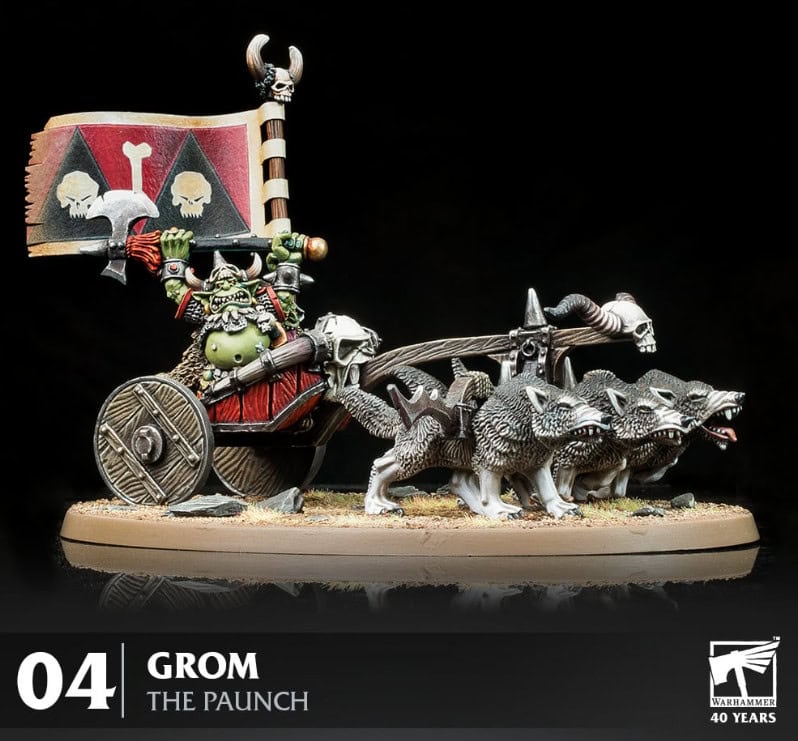
Back in the day, this model was a showstopper. If you saw it when it first launched, it was hard not to be completely smitten.
Grots and wolves have always had a bond in Warhammer lore, and the Snarlfang Riders bring that timeless partnership into the Mortal Realms.
Chariots have certainly evolved over the years. While Grom the Paunch may not grace the tabletop anymore, at least we still have some ferocious wolf riders to carry on the legacy!
Number 3: Skeleton Horde
This skeletal warrior was just one of many in a box that packed a staggering 24 miniatures. Each sprue offered enough parts to assemble four unique skeleton warriors with various head, arm, and weapon options. This set marked a pivotal moment in Warhammer’s history, signaling the shift from its roleplaying roots to epic battles between massive armies.
Who doesn’t love skeletons? This classic model became an instant icon, kicking off a legacy of undead greatness.
Skeletons remain central to Warhammer even today. From the rank-and-file Deathrattle Skeletons protecting Soulblight Gravelord vampires to the bone-forged constructs of the Ossiarch Bonereapers, and the regal menace of the Sons of Velmorn, they’ve kept their eerie charm across the decades.
While skeletons have come a long way in both detail and design, it’s easy to see how these modern undead trace their lineage back to this timeless classic.
Number 2: The First Space Marine
Great things often start small (like all the figures), and Warhammer 40k is no exception. The first-ever Space Marine miniature was the spark that ignited an entire universe. With more of a medieval knight vibe than a sci-fi soldier, his oversized pauldrons and pointed helmet captured imaginations and laid the foundation for all future Space Marine designs.
Seeing this original Space Marine is like looking at a piece of history. While his power armor was still in its early stages, the model is undeniably cool—and you just know this guy has seen his fair share of battles.
Modern designs have refined the look over the years, but the iconic “beakie” helmet, now known as Mark VI ‘Corvus’ Pattern armor, remains a fan favorite.
It’s always a treat to see a beaky Marine, and this model shows where it all began. It’s no wonder the Space Marine line has grown into one of the best collections of miniatures and figures Games Workshop has ever produced for Warhammer 40k.
Number 1: ‘Slambo’
The original styling of the Chaos Warriors set the tone for heavily armored designs that would define Warhammer’s aesthetic, inspiring everything from the power armor of Warhammer 40k Space Marines to the imposing Stormcast Eternals of Age of Sigmar.
FAQ’s & Big Questions About Warhammer Figures
If you’re just getting started with Warhammer 40k figures cause you just played Space Marine 2 or watched the Amazon Secret Level 40k Animation featuring Lt. Titus or, or are here from Henry Cavill’s big Warhammer project announcement, we’ve got answers to all your burning questions.
From painting tips and pricing to where to find used models and the best action figures, this FAQ section has everything you need to know about Warhammer 40k miniatures and figurines. Here are all the details and make sure you’re ready to build, paint, and collect like a pro!
Where to Order Warhammer Models & Figures
Here is the answer to the question, “Where to buy Warhammer miniatures and new releases near me!” Snag your new pre-order goodies from our handpicked list of retailers, and give us a high-five in support! Every qualifying purchase helps Spikey Bits keep the lights on and the fun going.
Quick Order Links Get 15% Off or More:
Mid Atlantic US: Fabricators Forge | Bazooka Games | Frontline Gaming (West Coast US) | The Rogue Traders | Central US: Dicehead Games | Noble Knight Games | Warpfire Minis | West Coast US: Squadmarks |
Worldwide: Amazon | eBay| or | Games Workshop’s Store | UK: Element Games (UK) | Merlin’s Minis | Wayland Games | Canada: Tista Minis | Abyss Game Store | Kingdom Titans |
You can save even more with our exclusive list of redeemable discount codes from some of the best hobby retailers and miniature manufacturers out there!
Final Thoughts on the Best Warhammer 40k Miniatures & Figures
You can see the inspiration this gave to the styling of future models figures for both Warhammer 40k and Age of Sigmar! Just fantastic to see it compared to the newer minis. The company’s dedication to crafting intricate and visually stunning miniatures has captivated hobbyists worldwide for four decades.
From the Freeguild Cavalier-Marshal to the Votann Grimnyr, each miniature showcases the incredible attention to detail and creativity that Games Workshop is renowned for.
Warhammer 40k Factions Explained: A Complete Guide to Every Army
What do you think are the best Games Workshop Warhammer 40k figures and miniatures of the last 40 years?
